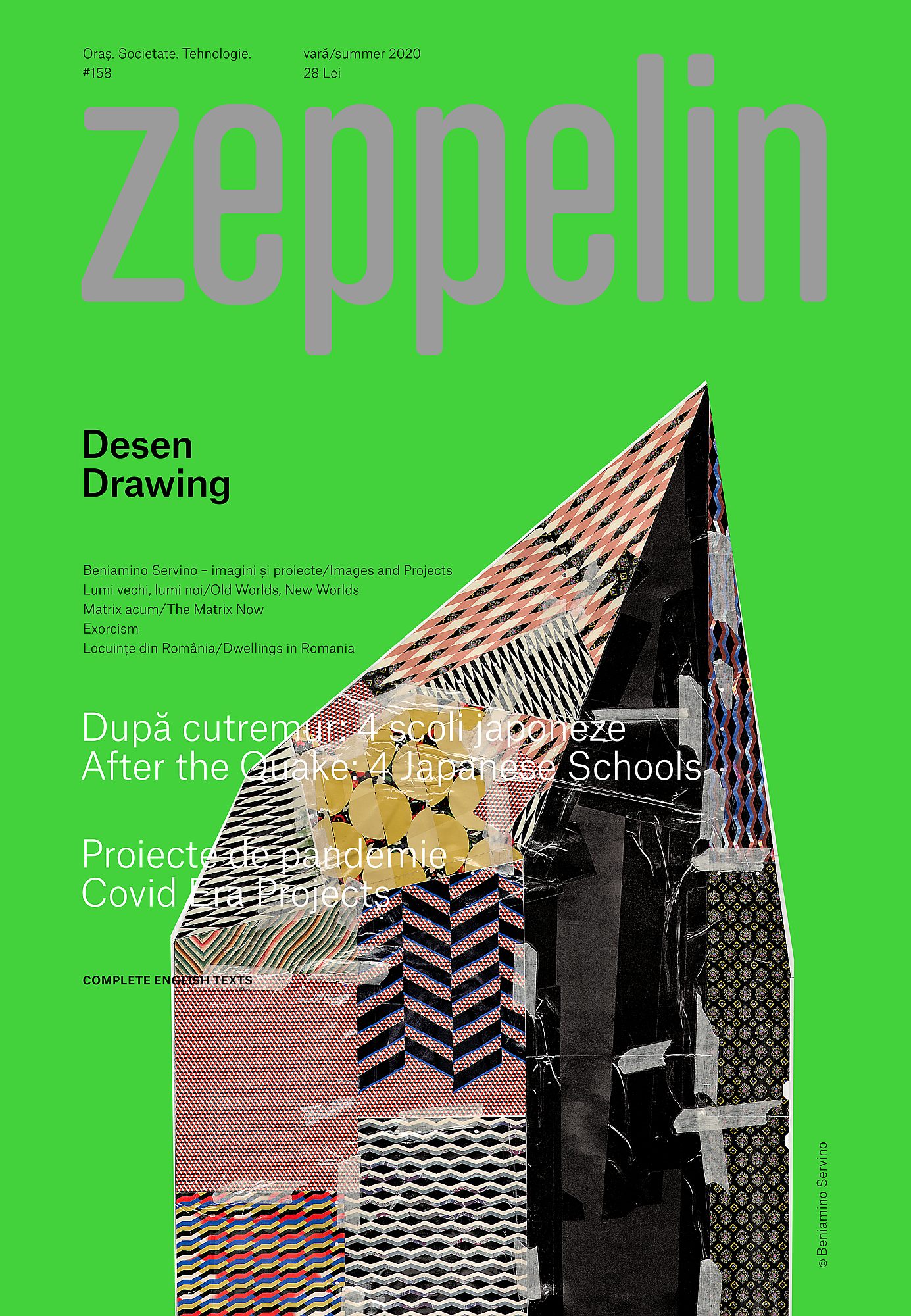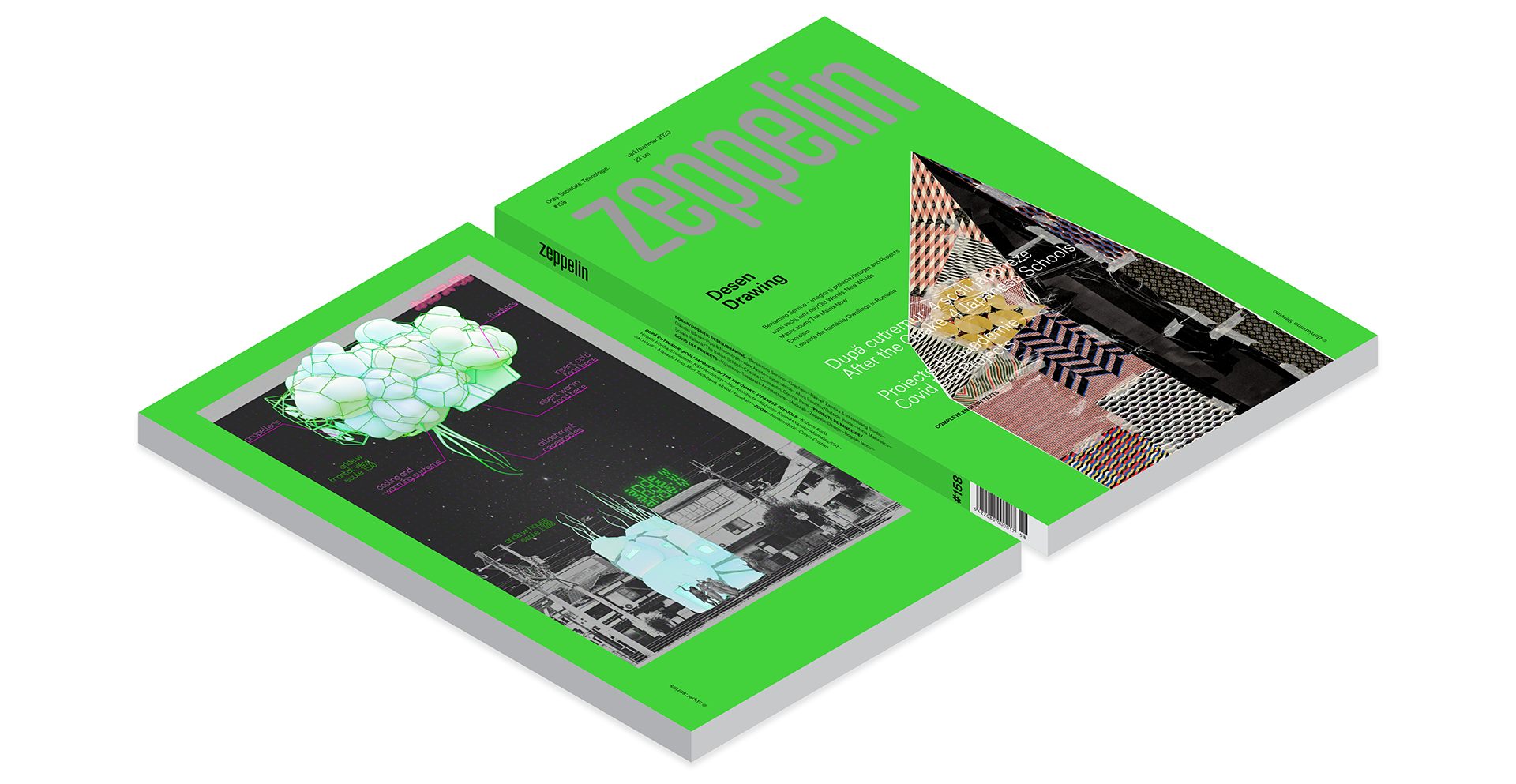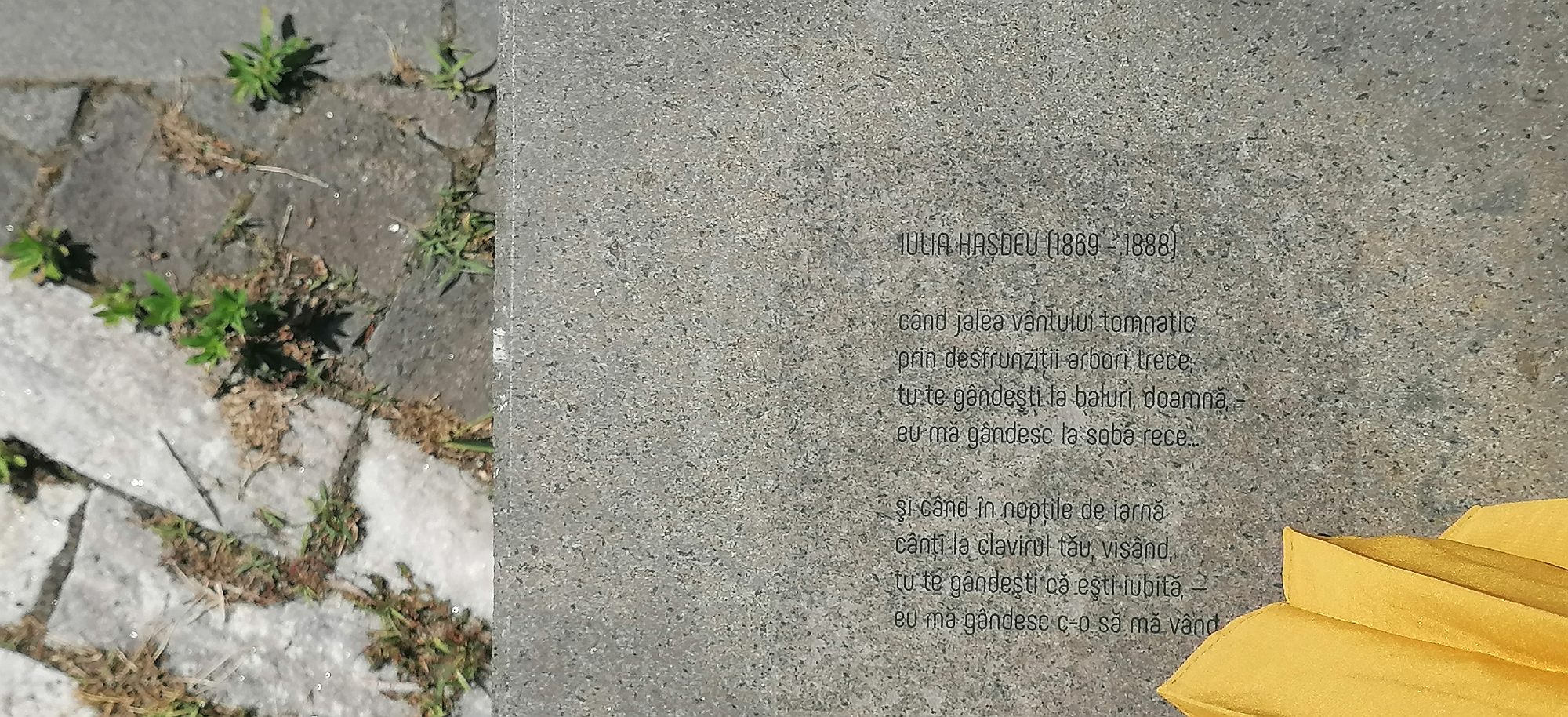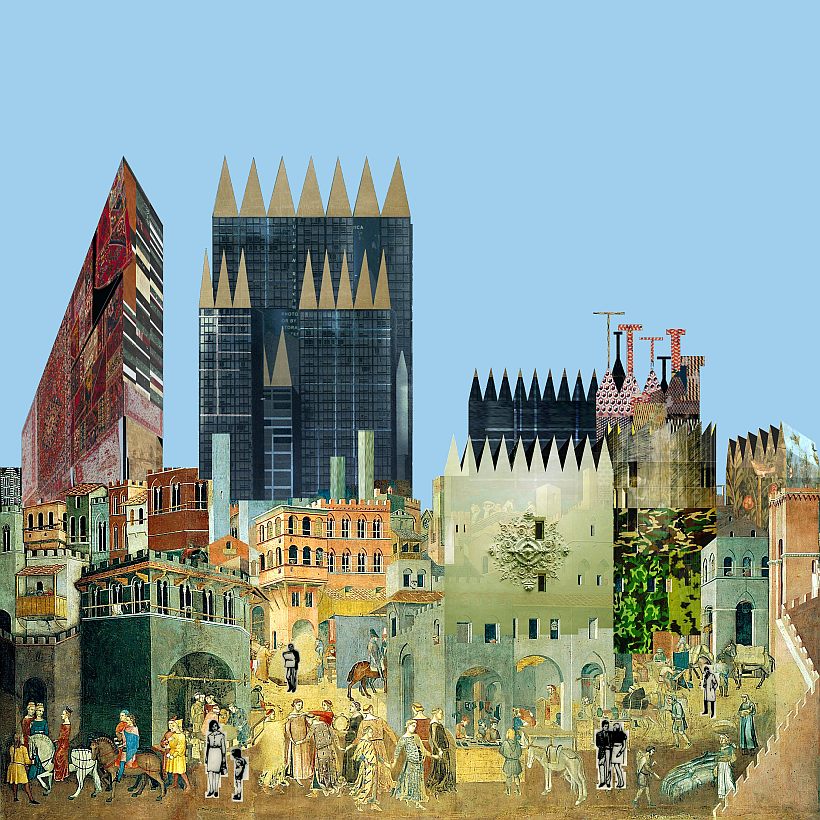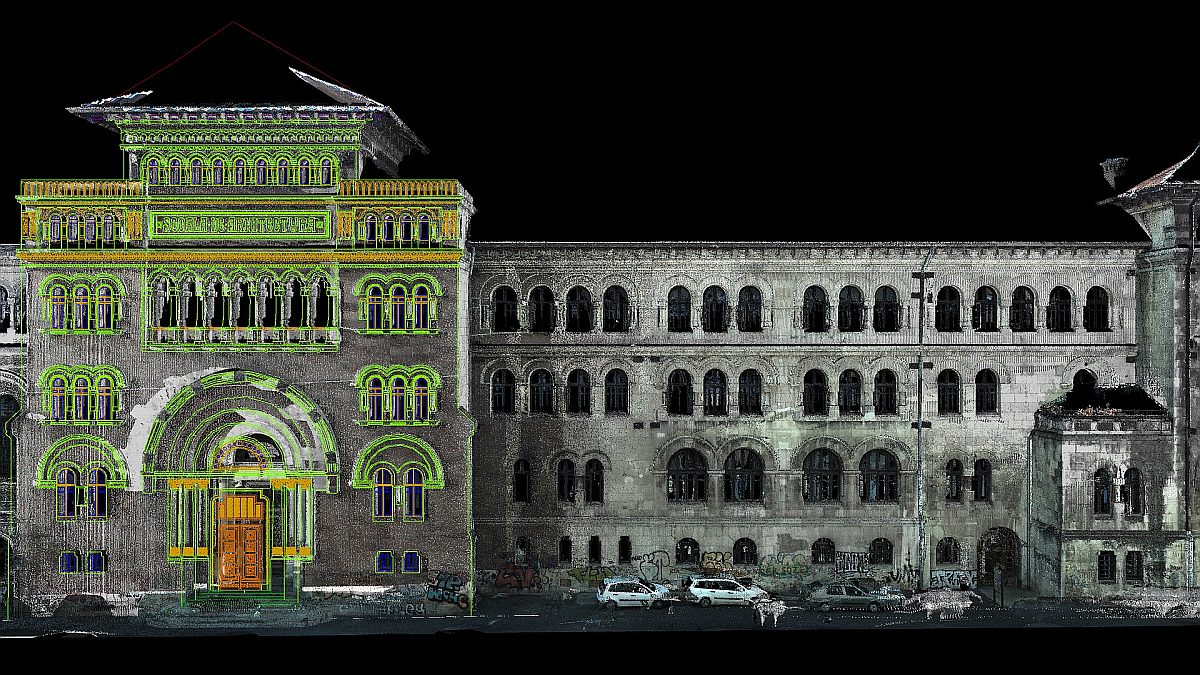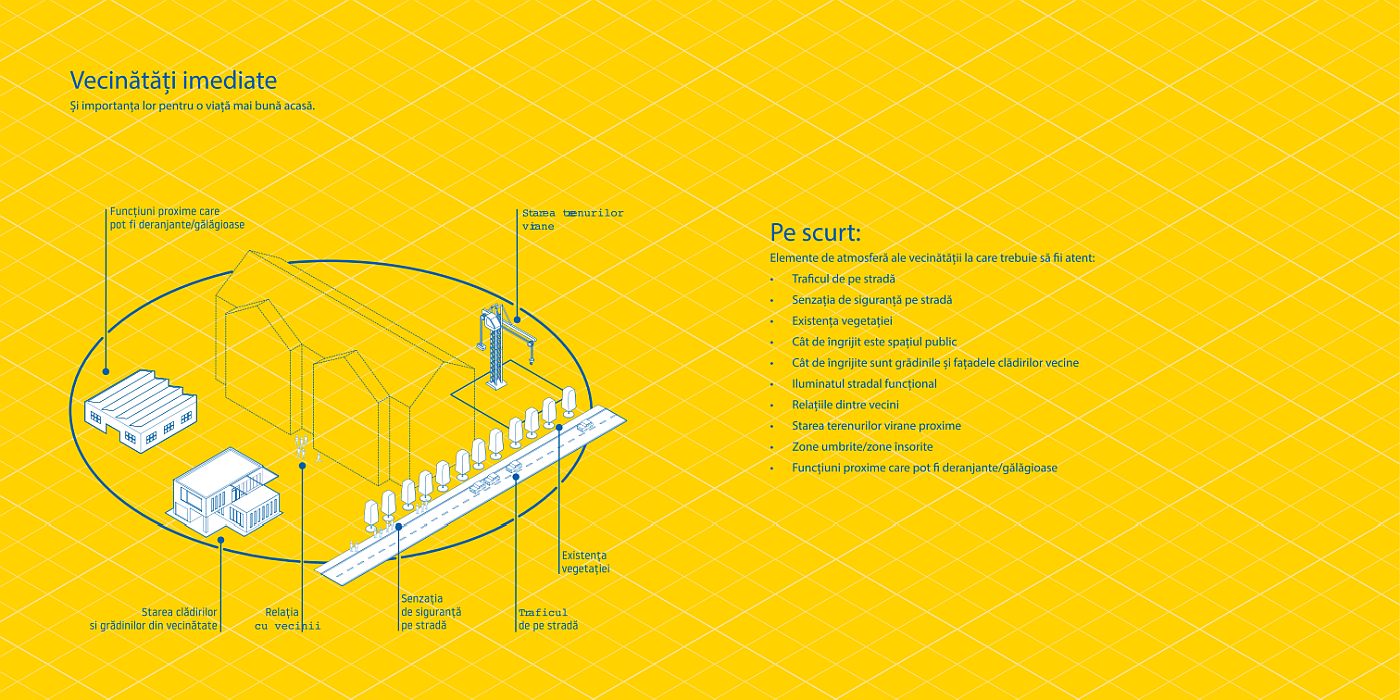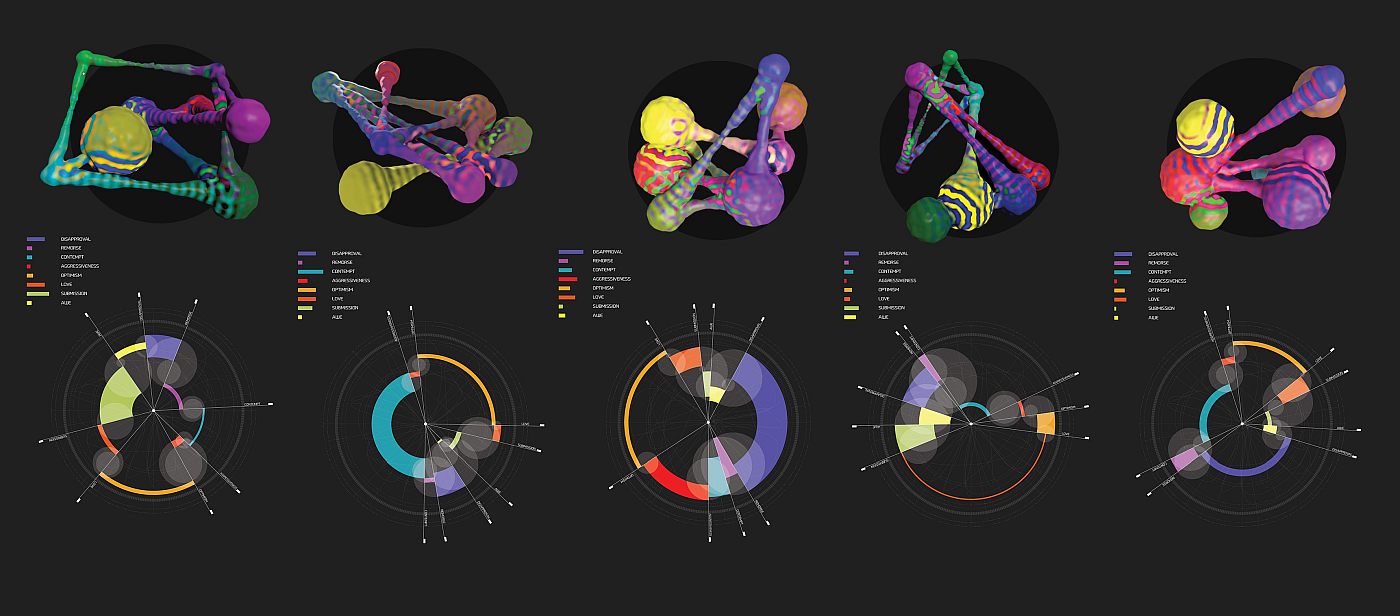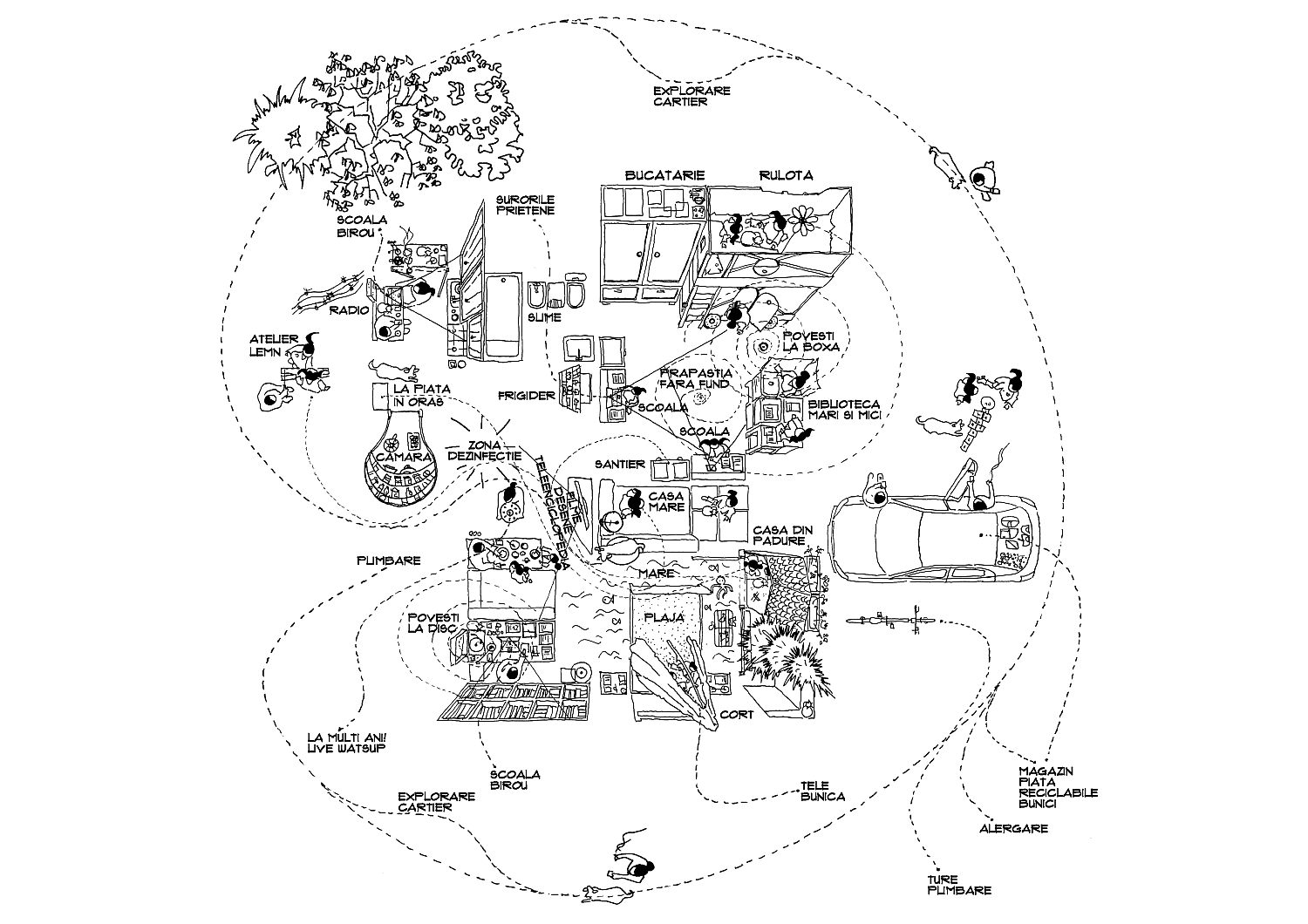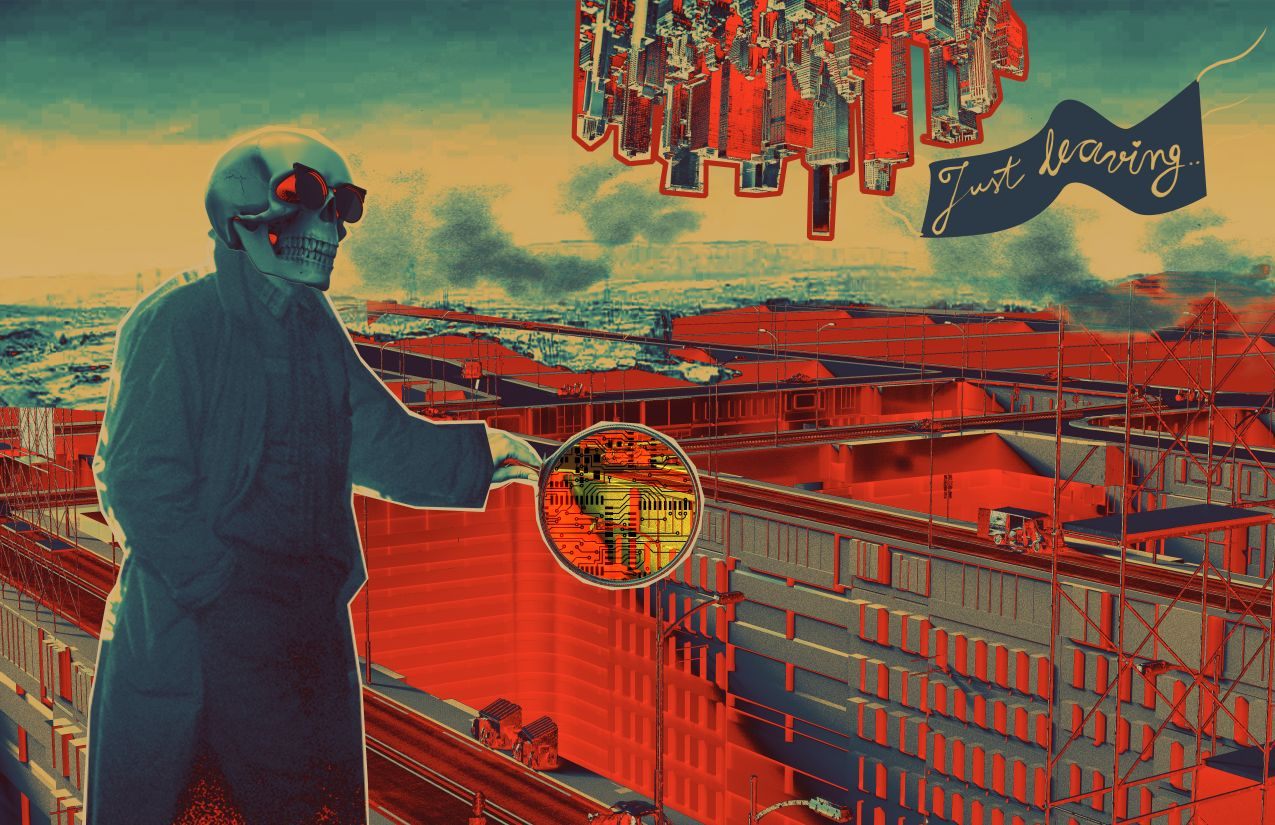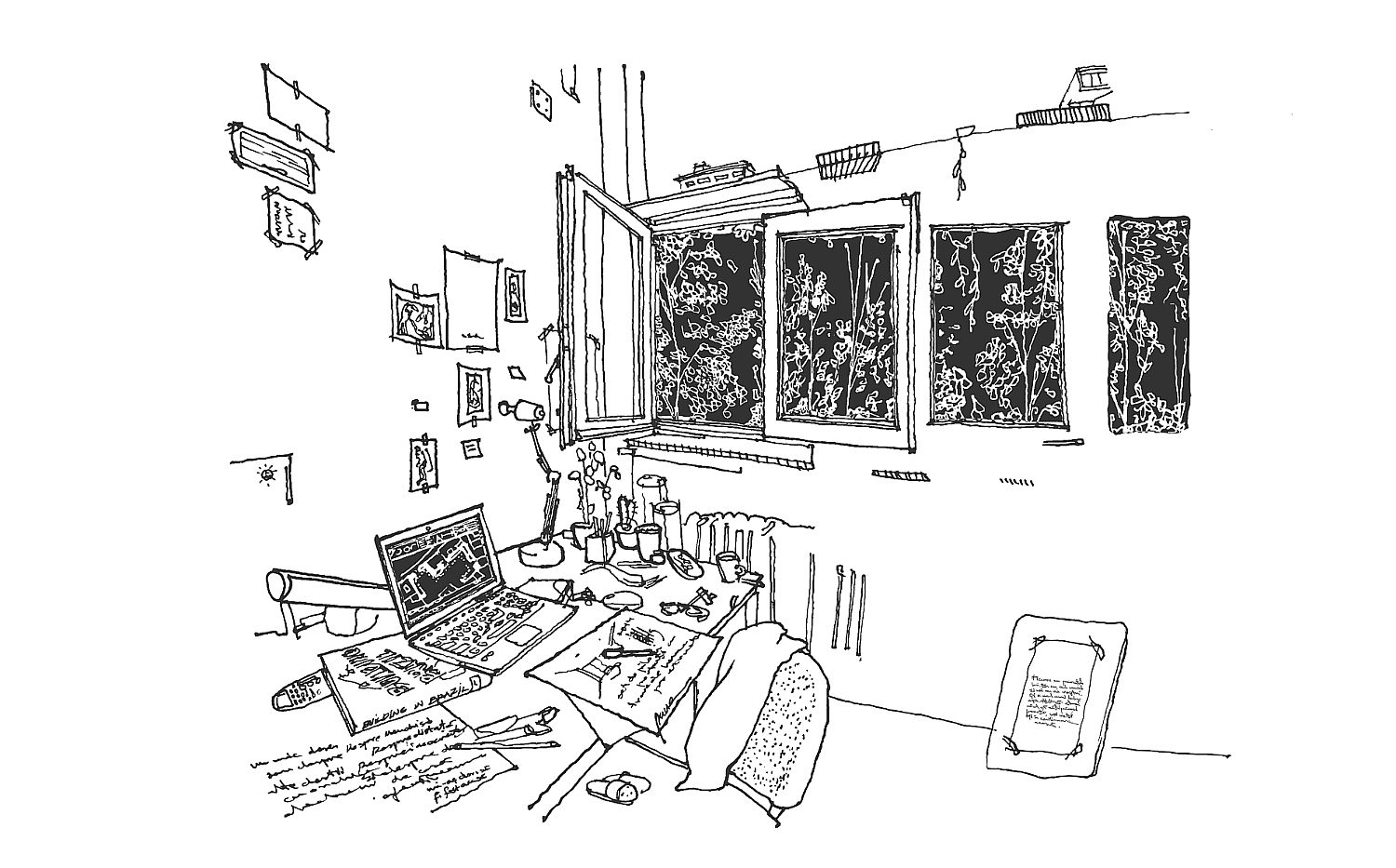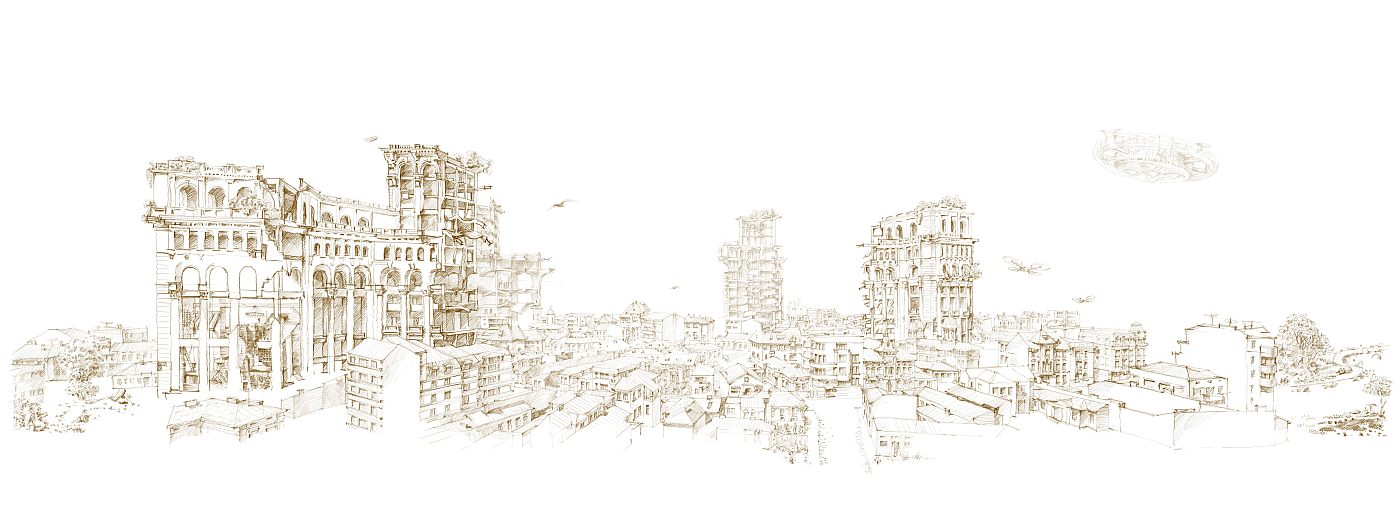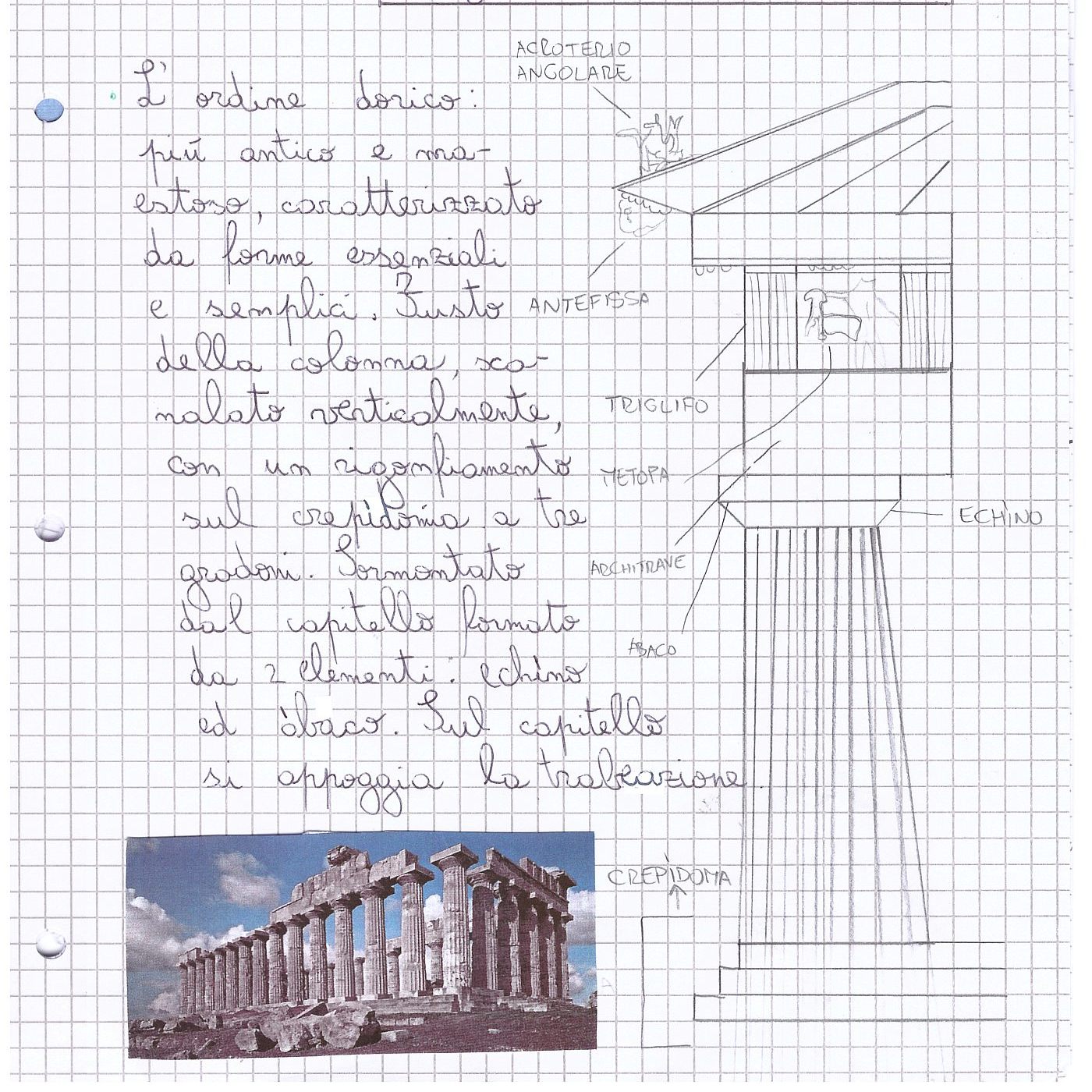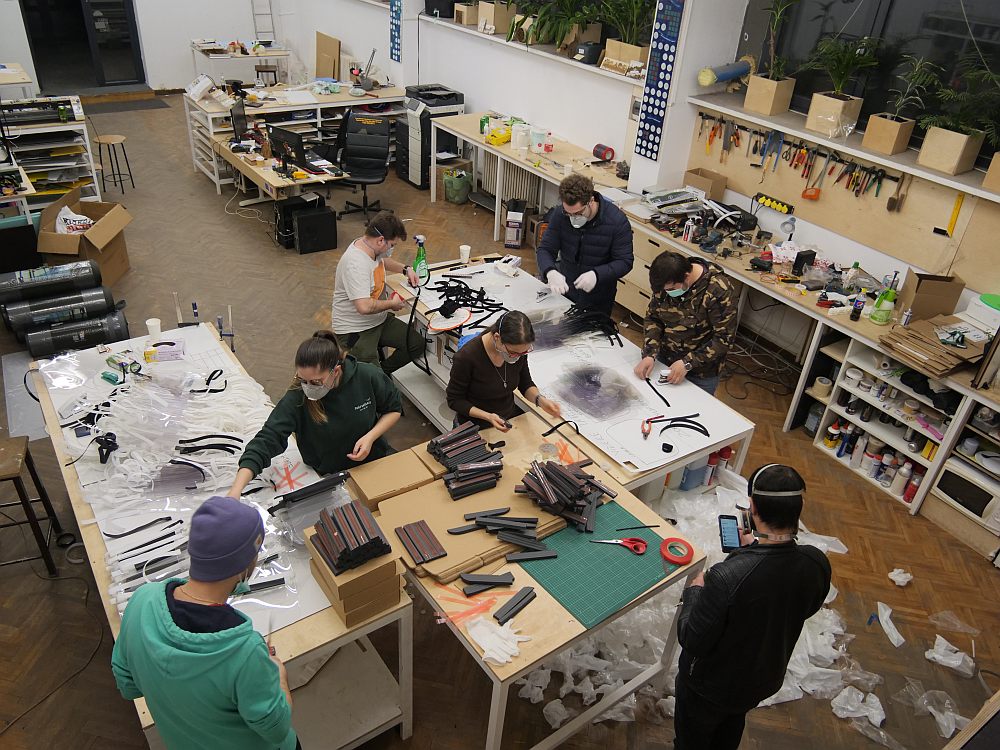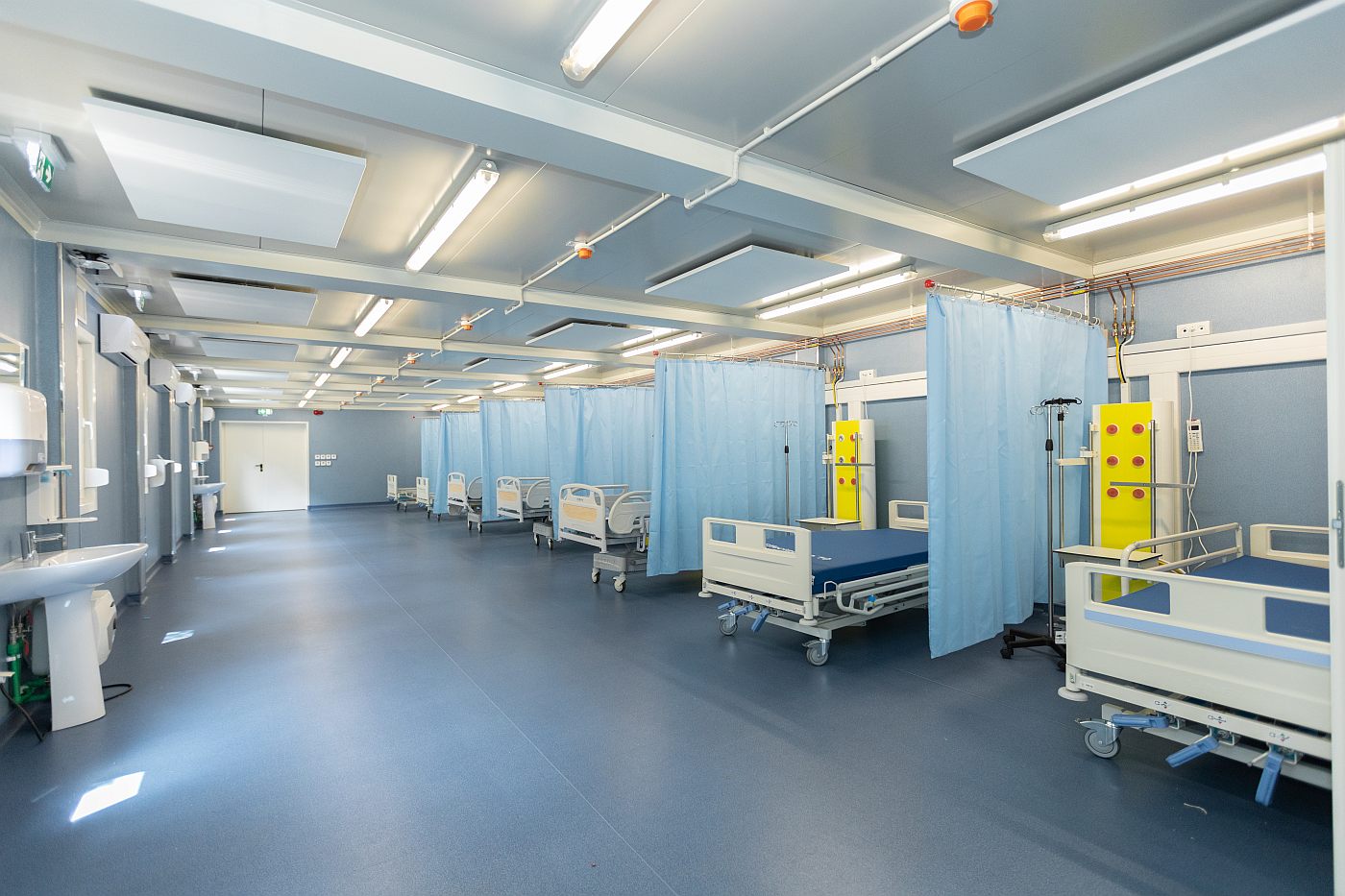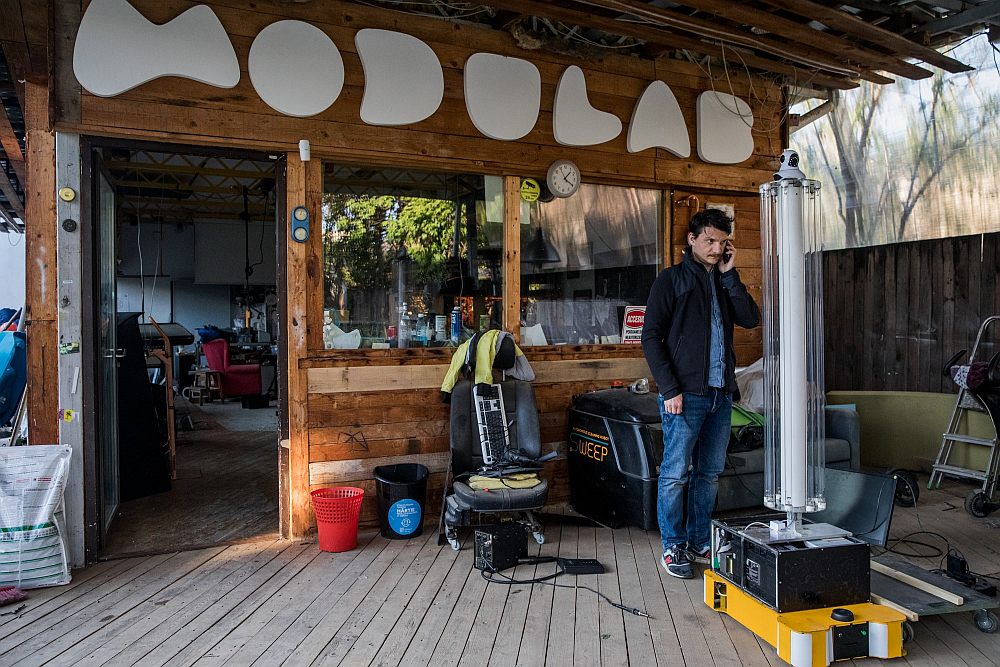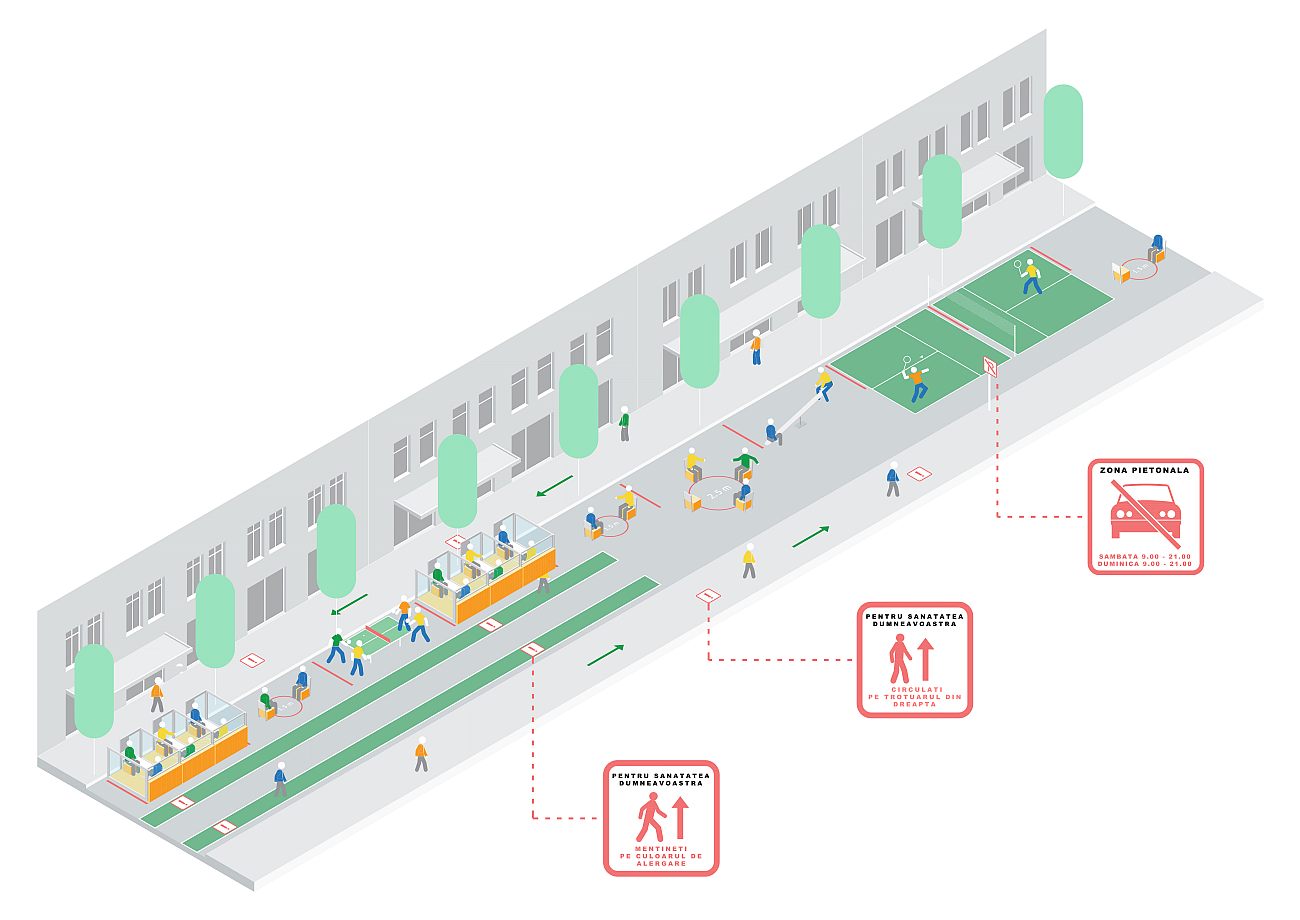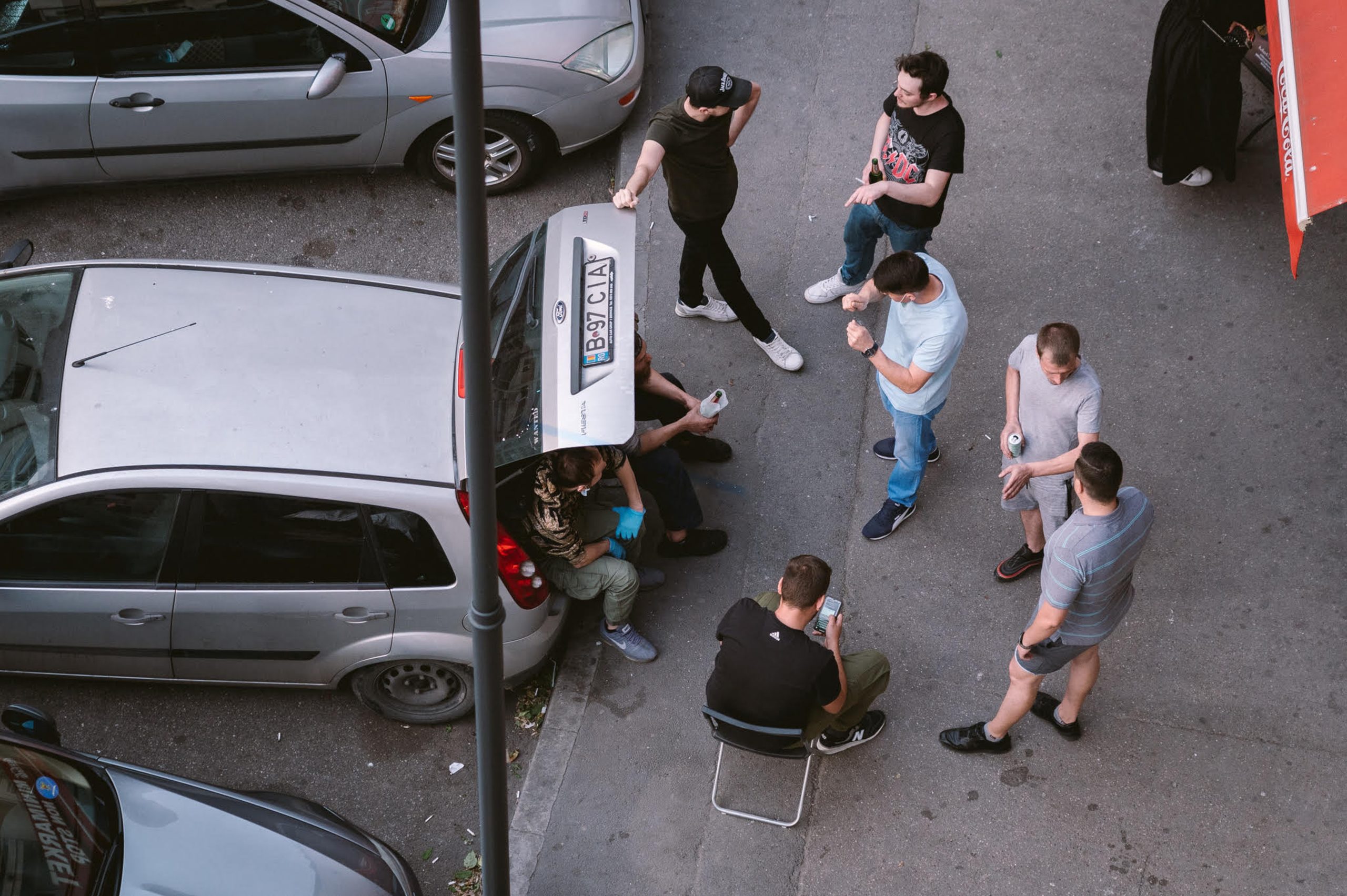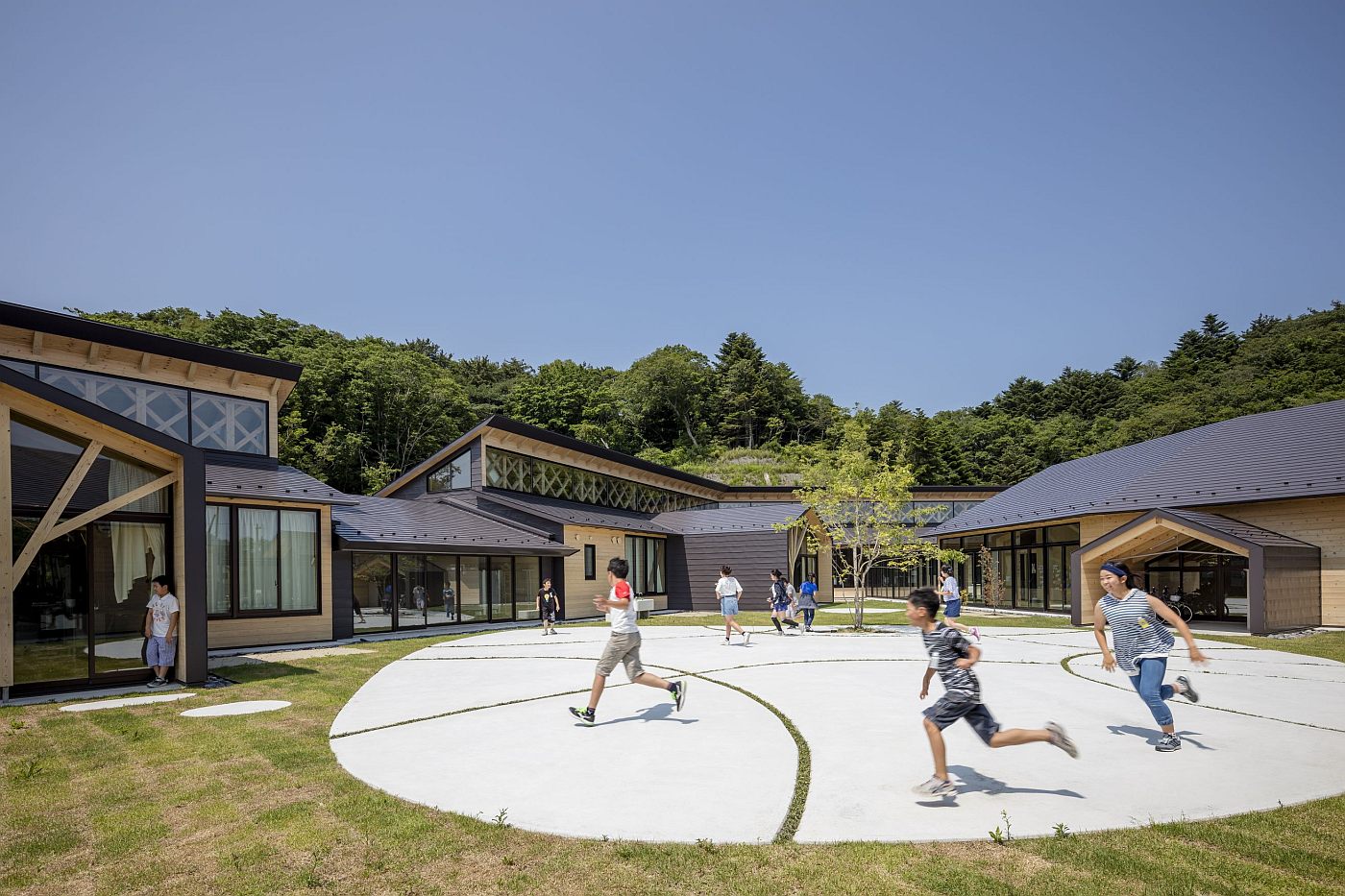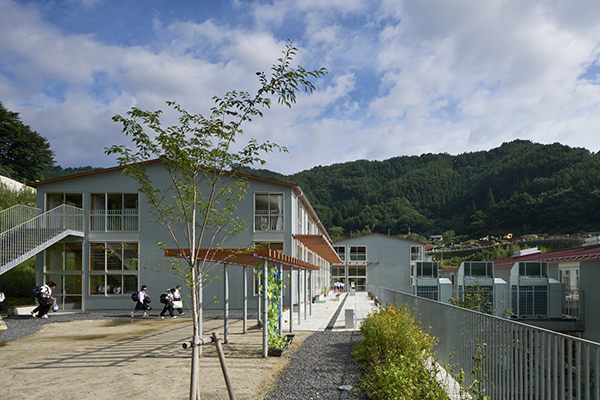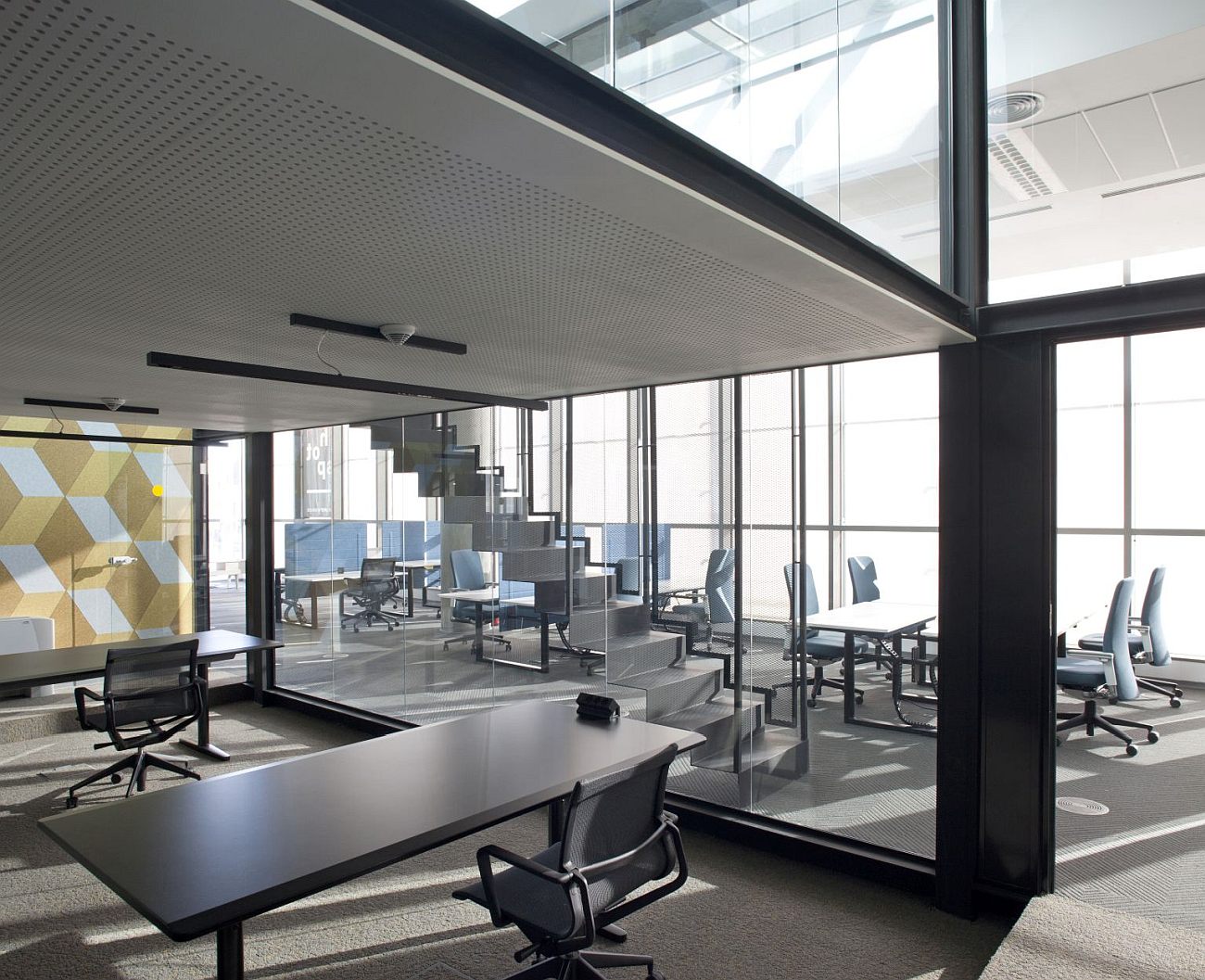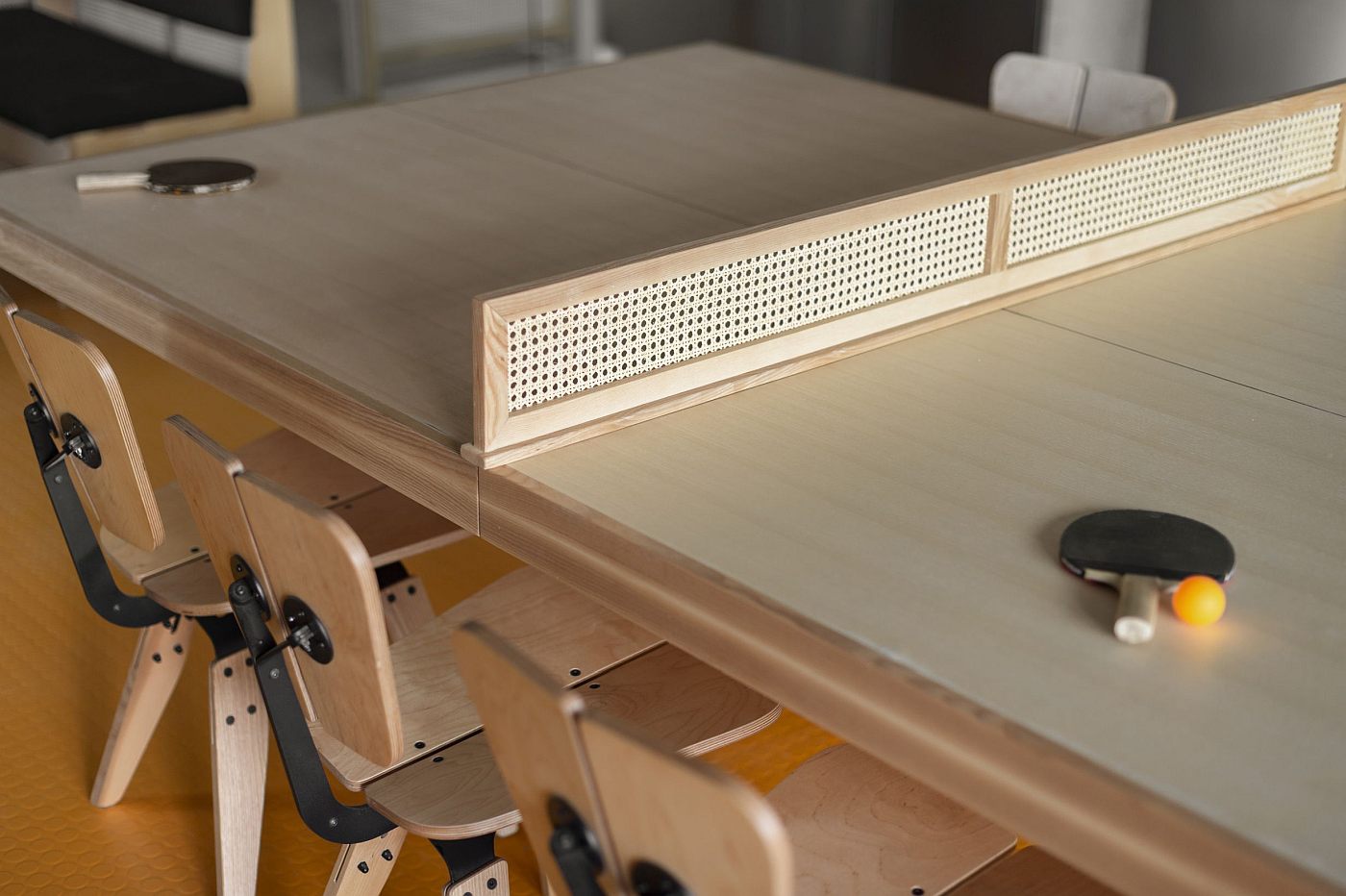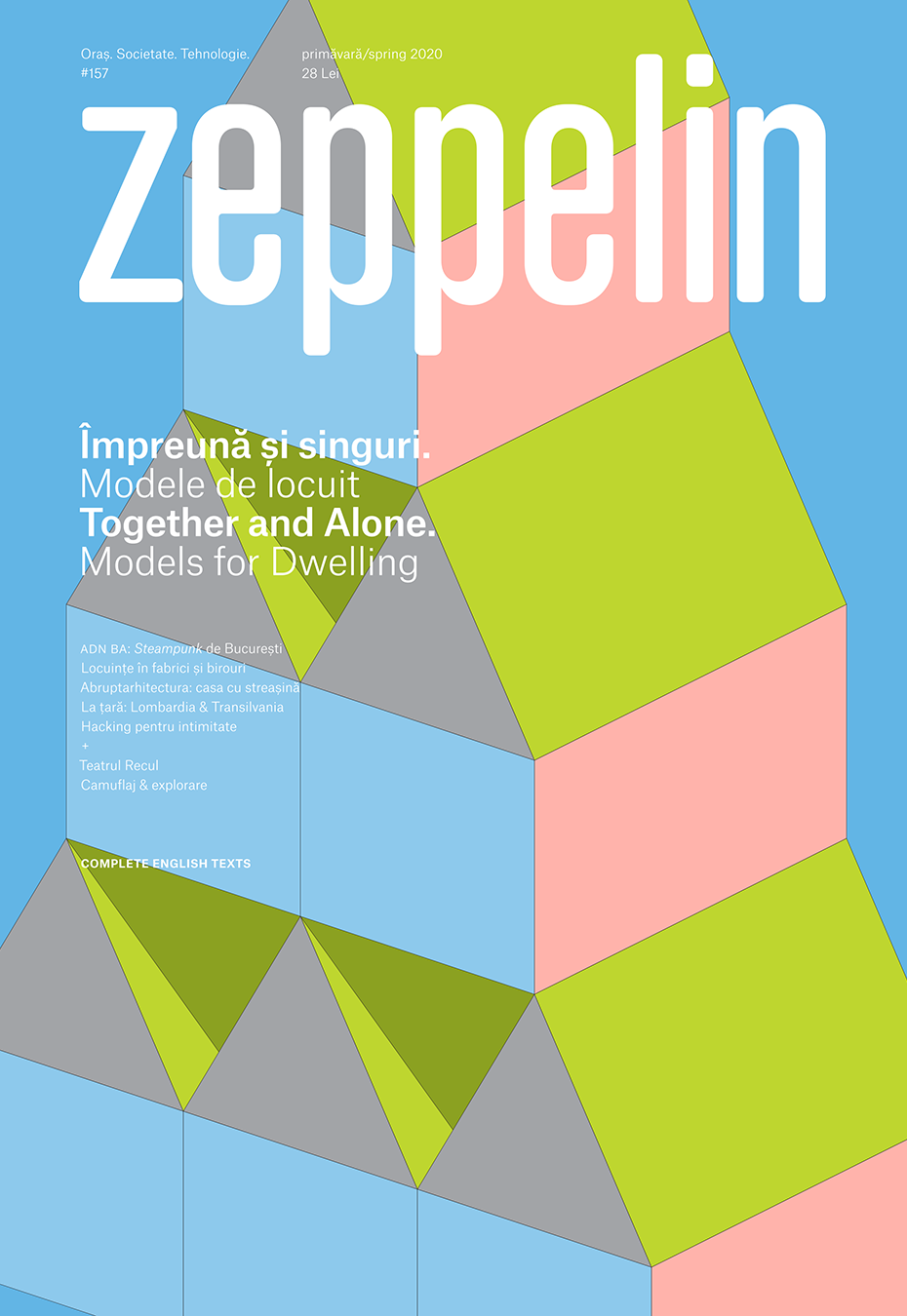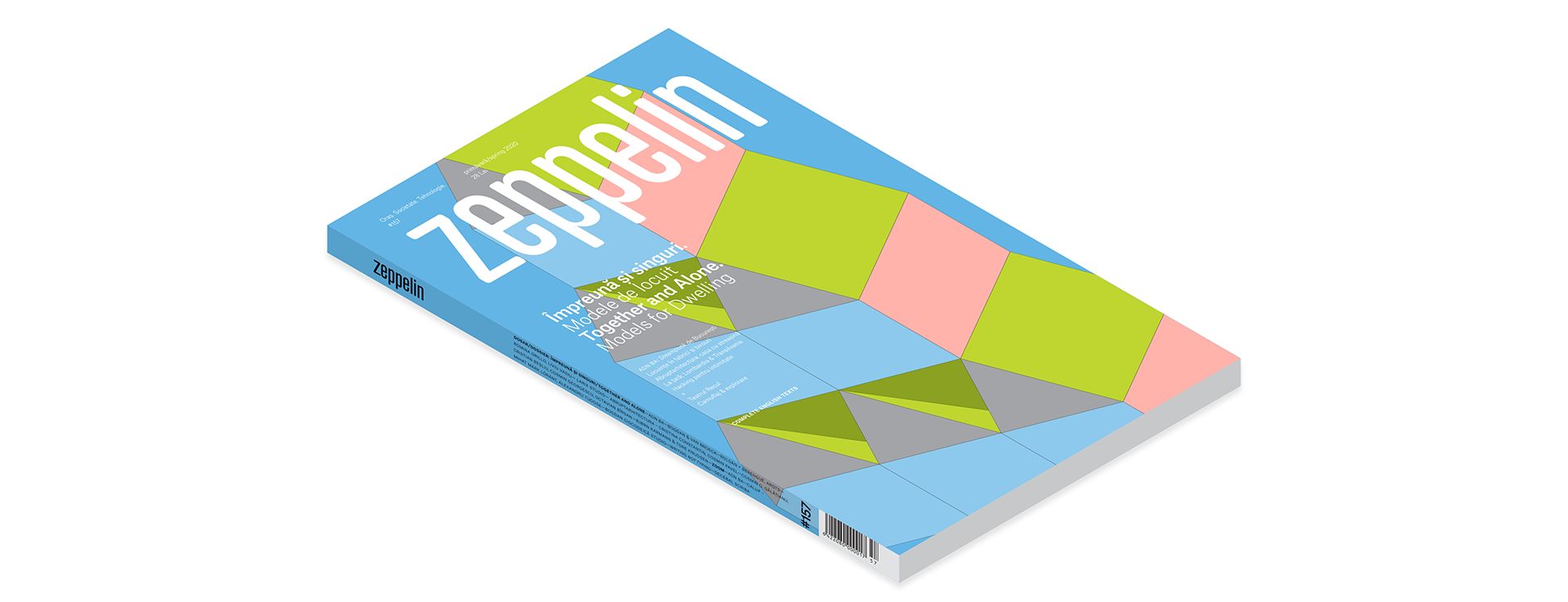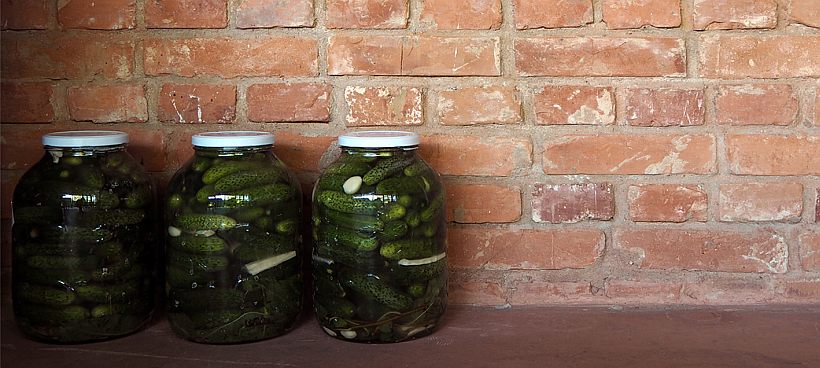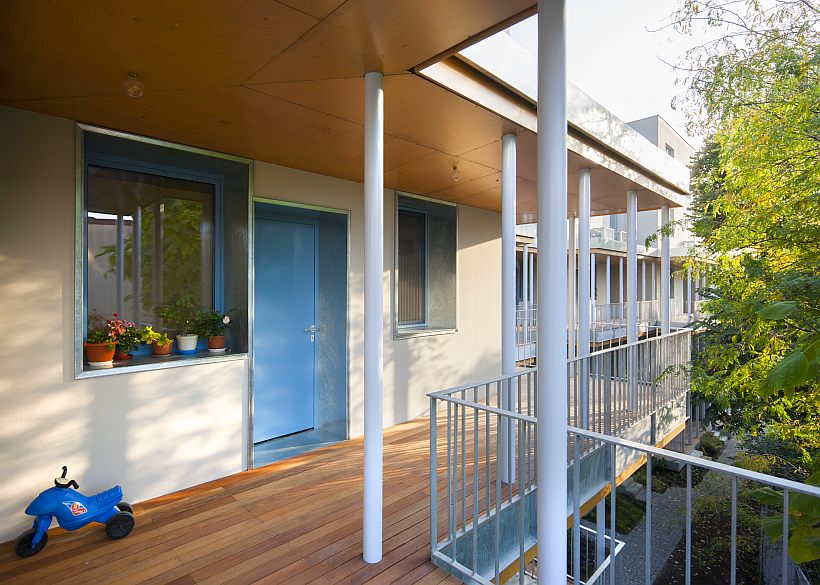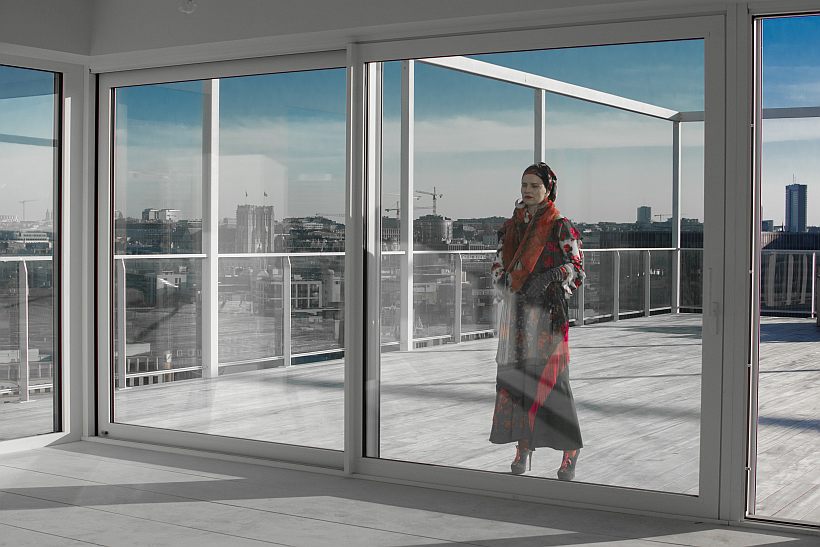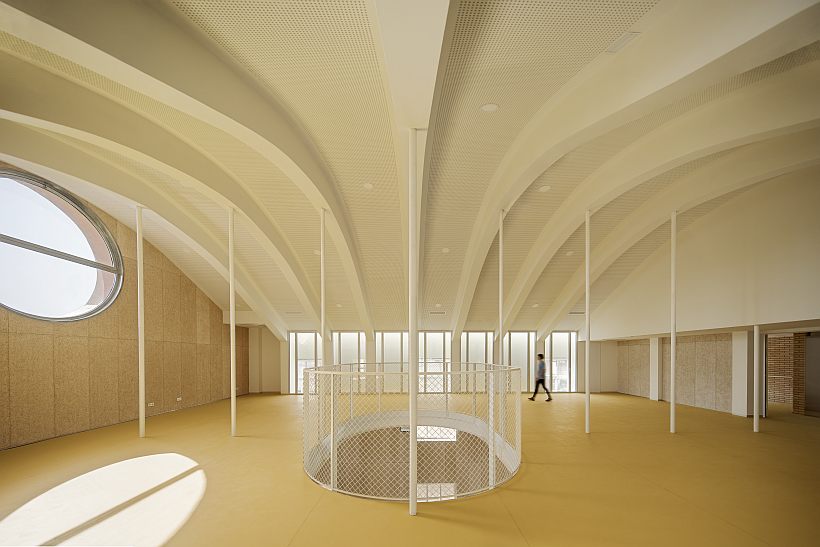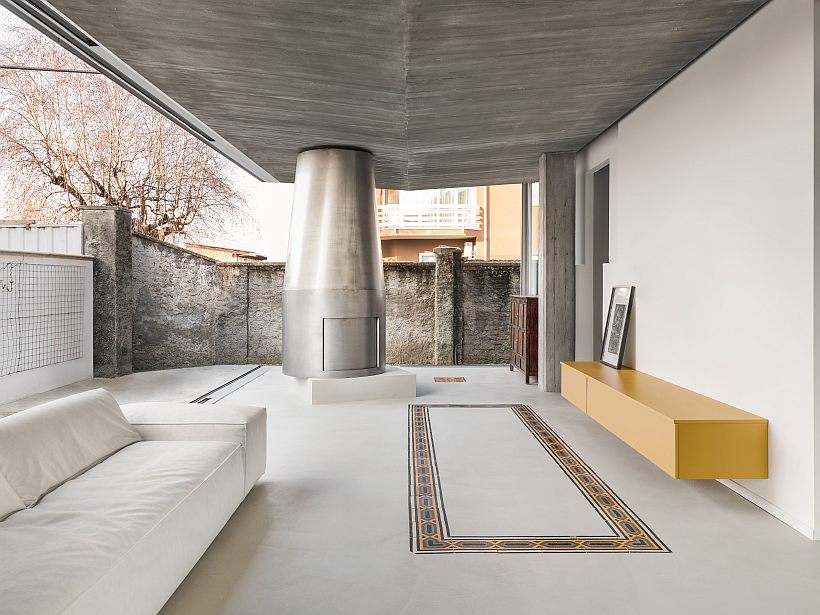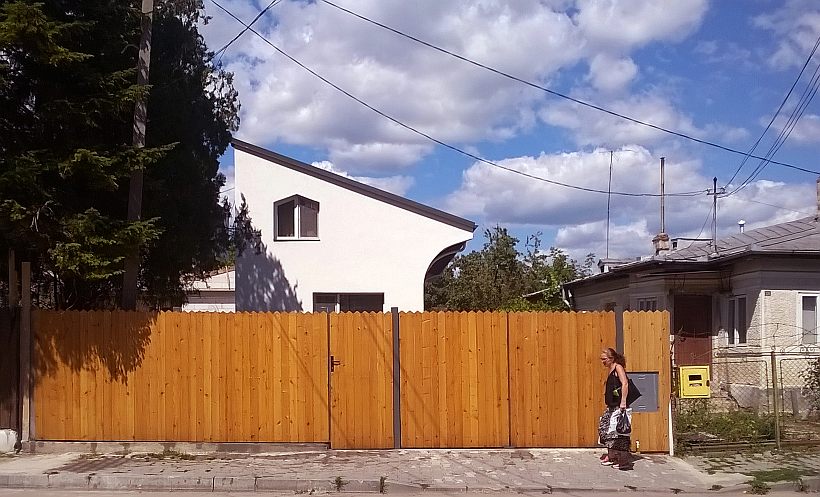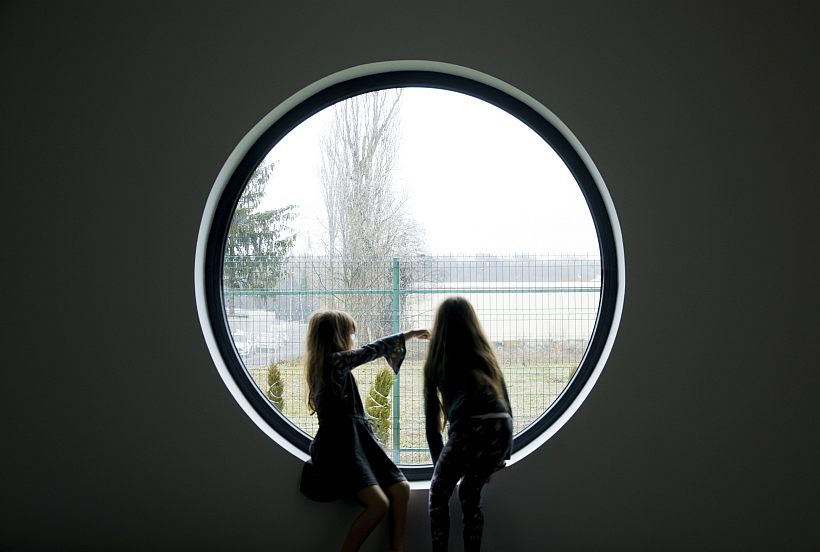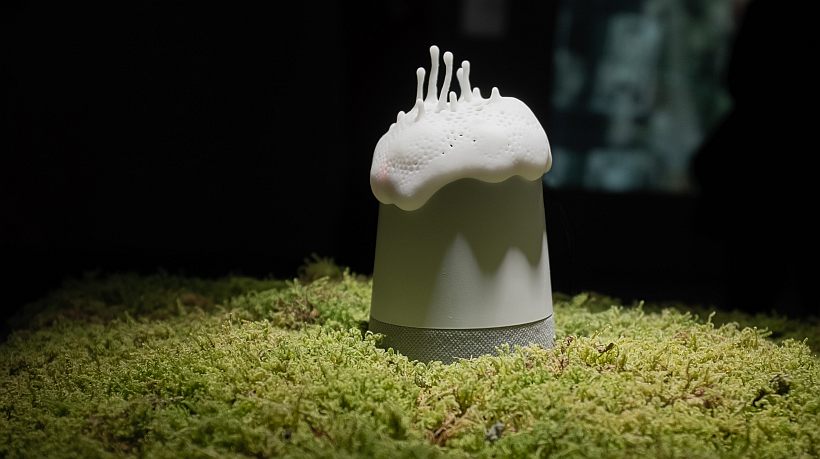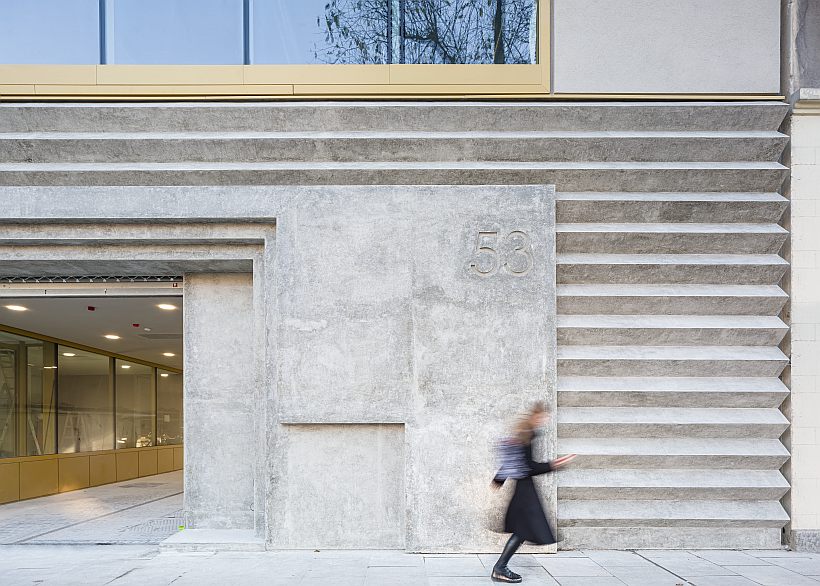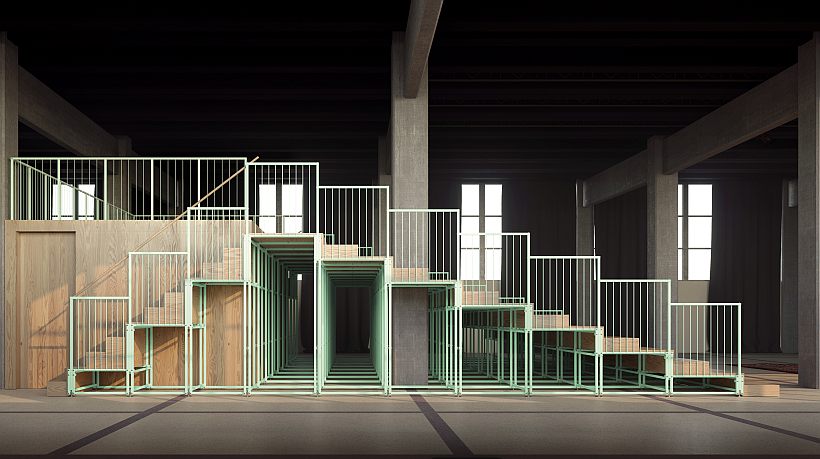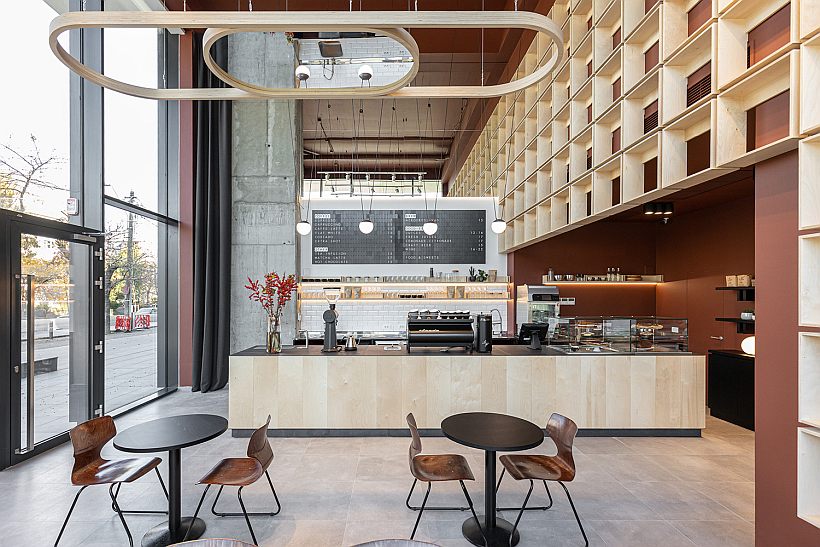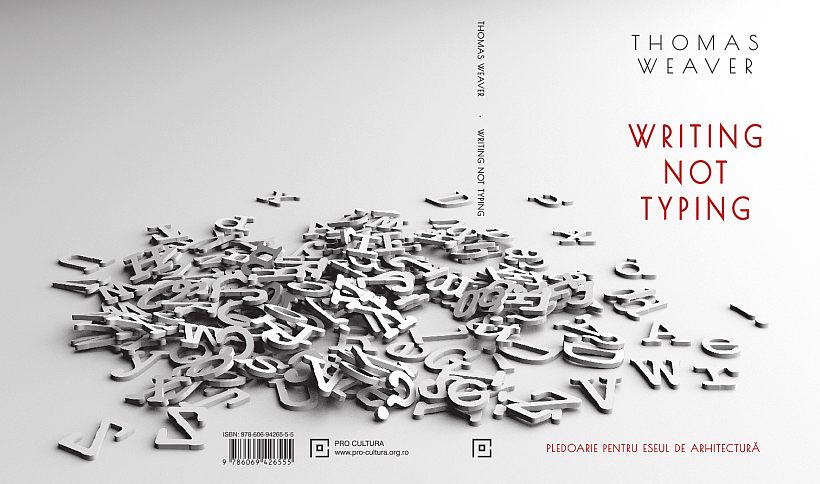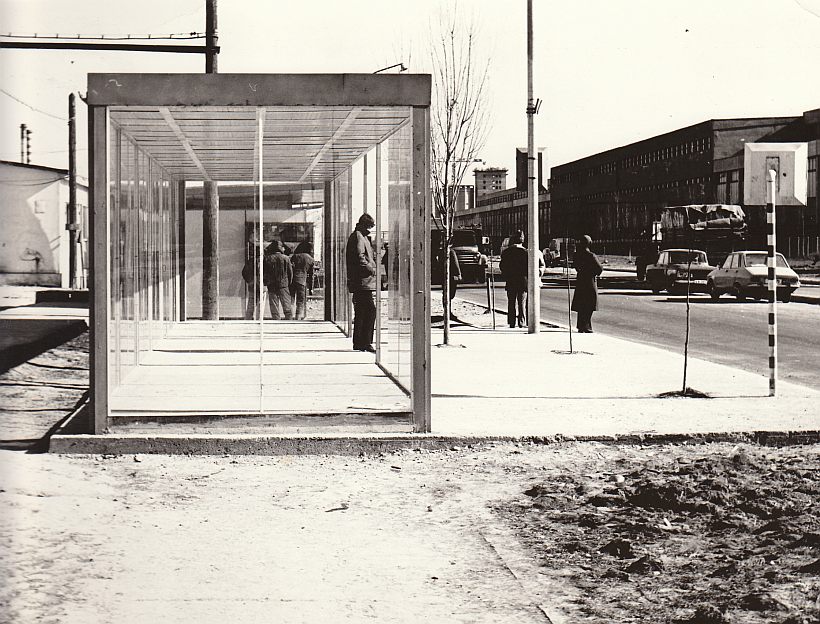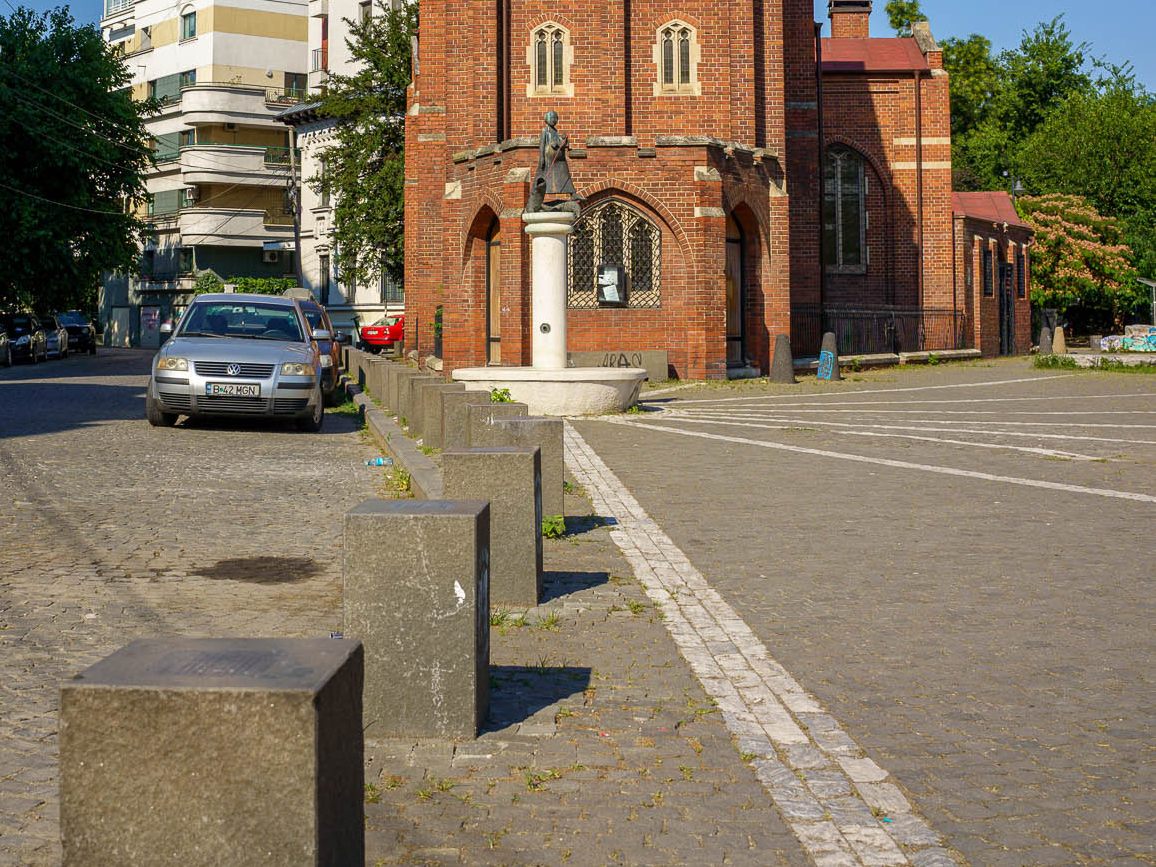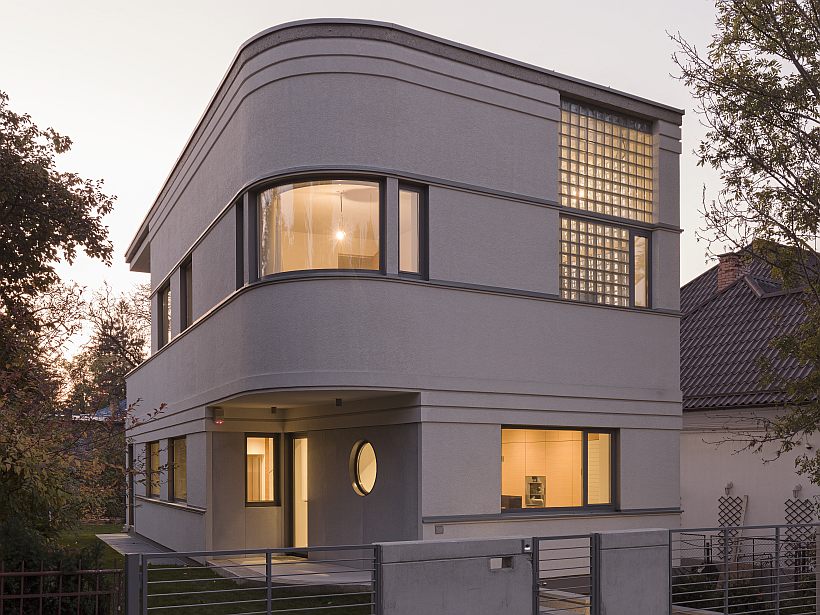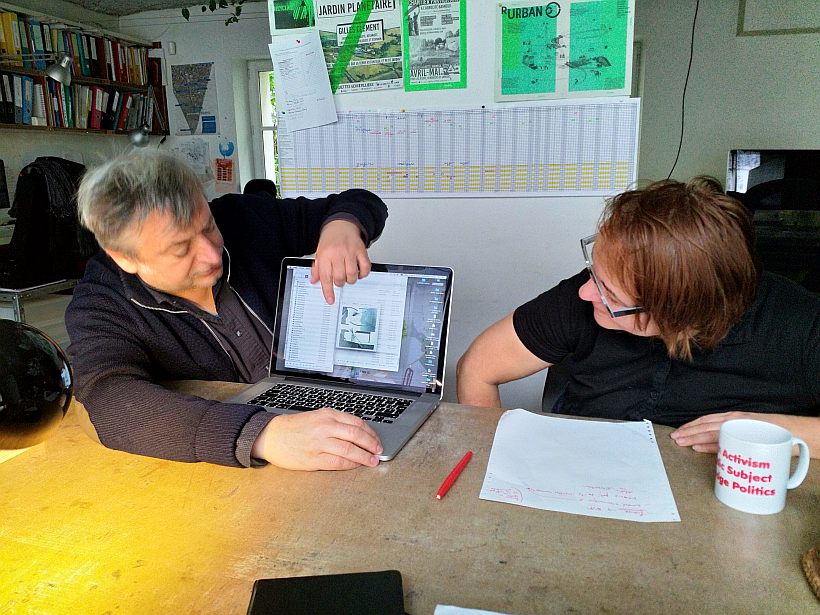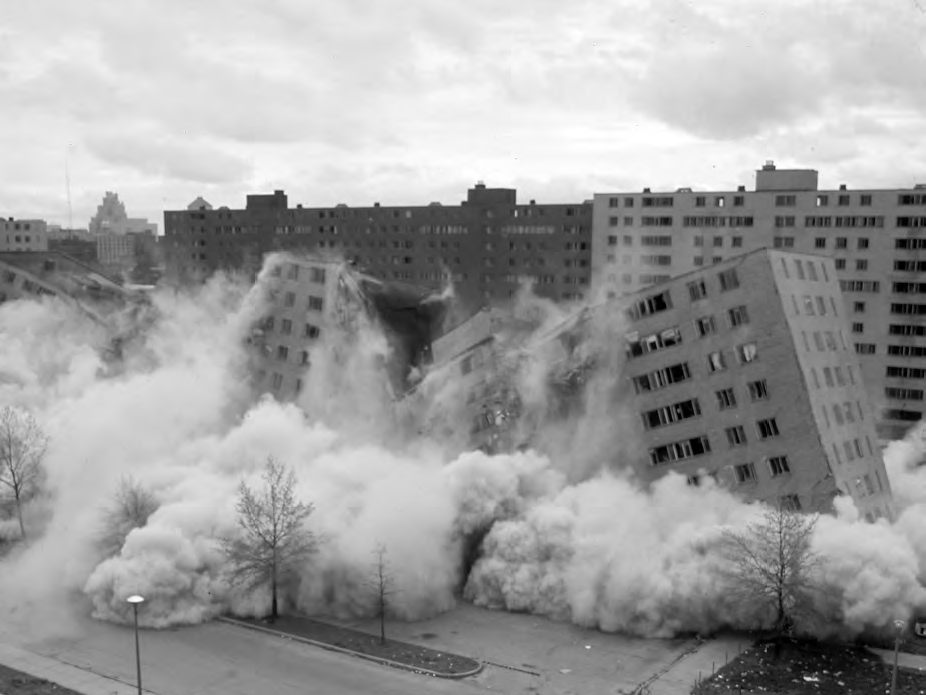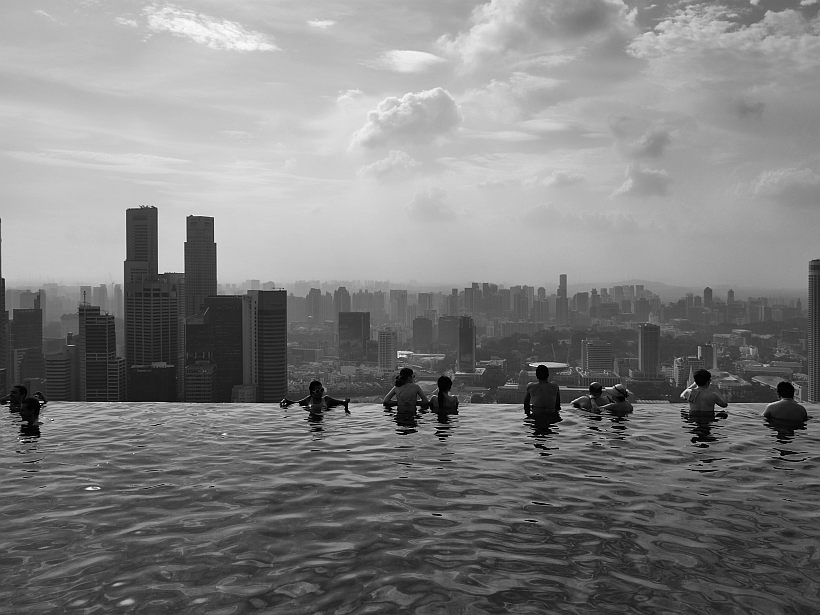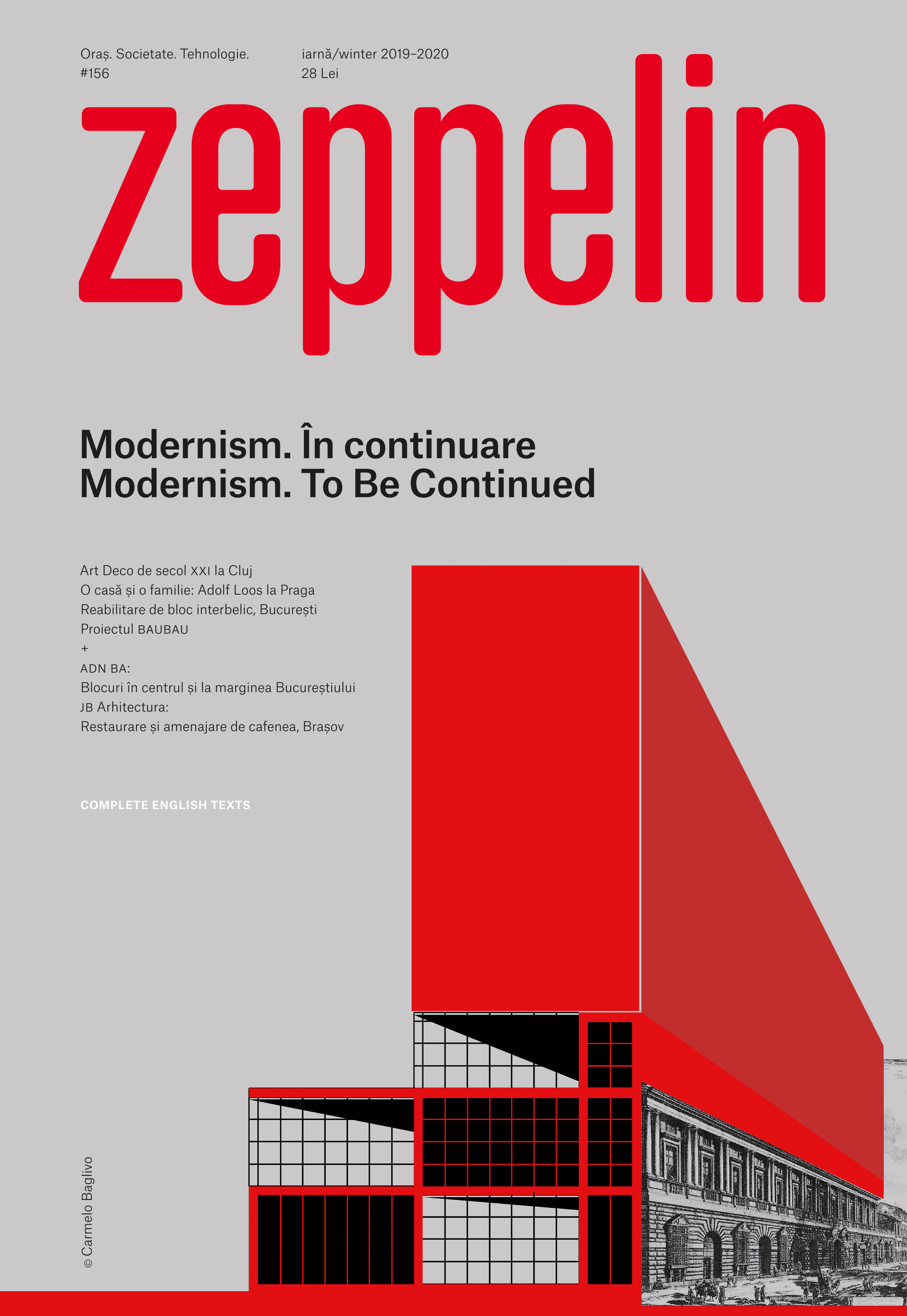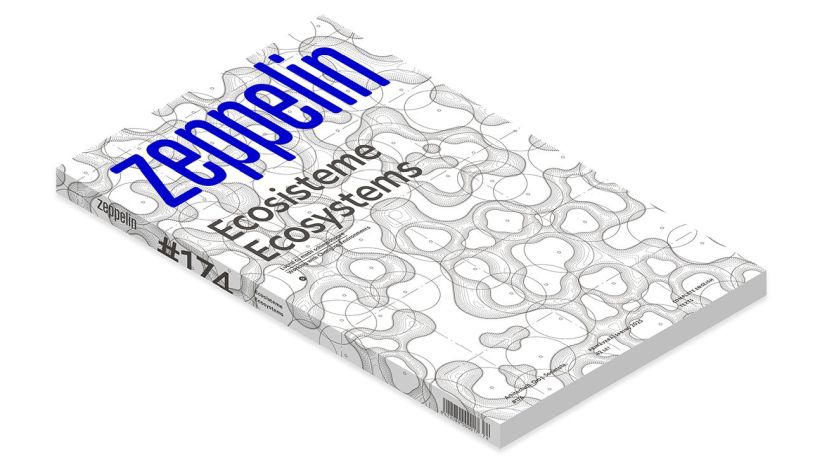Text: Ștefan Ghenciulescu
Photo: Andrei Mărgulescu, Cosmin Dragomir, Daniel Miroțoi, Mihai Rotaru
The word steampunk conjures a mixture of Sci-Fi and nineteenth-century aesthetics: goggles over high hats, ladies’ hoop skirts and gentlemen’s frock coats matched with mechanic limbs, etc.
- Recommend on FacebookTweet about it
Edito: 74 Nearly Forgotten Poets. And a Nearly Invisible Memorial
TEXT Mugur Grosu
DOSSIER: Drawing
Intro
TEXT Ştefan GhenciulescuAutobiografia scientifica
Beniamino Servino: Image, Imaginary, Identity, Idiosyncrasy
TEXT Alexandru Cristian BeşliuMatrix at Hand
3D Scanning and Reconstruction of RealityText: Ştefan Ghenciulescu
Imagini: GrapheinData, Images, City
Răzvan Zamfira & Interrobang StudioParticipatory Worlds
Claudiu Bârsan-Pipu & NeomorphIndoors, in a Tent
TEXT Alex Axintesuper:serios
Games, Design, and Urban InteractionsIntro: Lorena Brează
Text / ilustrații: super:seriosOutside Inside
A Lockdown Student CompetitionHoria Marinescu
Exorcism through DrawingText: Ștefan Ghenciulescu
Education by Drawing
The Italian SchoolText: Ştefan Ghenciulescu, feat. Magdalena Nicola
The Romanian Dwelling. A Folder
On plans, models, archives, and housesTEXT Cristina Constantin, Cosmin Pavel
DOSSIER: Covid Era Projects
Intro
TEXT Lorena Brează, Ştefan GhenciulescuViziere.ro
A Collaborative ProjectA War Hospital
Text: Loren Brează
Photo: Alexandru RoşanuRobot at Work
ModulabText: Lorena Brează, Ioana Calen
Photo: ModulabCity 1.5
A Project for (Post)pandemic TogethernessCOVID Street
Accumulating Street Images of the PandemicTEXT Bogdan Iancu
DOSSIER:
After the Quake: Japanese SchoolsIntro
Miyanomori Elementary School
Toni Elementary School, Junior High School and Nursery School
Kamaishi Unosumai Elementary School, Kamaishi Higashi Junior High School, Unosumai School Nursery, Unosumai Kindergarten
Takata‑Higashi Junior High School
ZOOM
HOTSPOT Co‑working Space
TEXT biroarchitetti
Domestic
Corvin Cristian: Offices for Jazz Communication, BucharestText: Ștefan Ghenciulescu
PLANS
- Recommend on FacebookTweet about it
Edito: School in the Coronavirus Times
TEXT Ştefan GhenciulescuLearn as you go
There is fear and sadness, feelings that all of us are experiencing. But there is also enthusiasm (a lot of it) and competence (more or less of it). Balkan-like bricolage and makeshift online solutions (…)
DOSSIER
Together and Alone. Models of Dwelling
Intro
TEXT Ştefan GhenciulescuBucharest Steampunk
ADN BA. Urban Spaces 2/MumuleanuProject: ADN BA
Text: Ştefan Ghenciulescu
Photo: Laurian Ghiniţoiu, Andrei Mărgulescu, Cosmin Dragomir, Daniel Miroţoi, Mihai RotaruThe Cosmopolitan. Offices Become Homes
BOGDAN & VAN BROECK. Turning an OfficeBuilding into Housing and an Urban Landmark, Brussels
The Social Housing Factory
Project & text: Roldán + Berengué, arqts
Photo: Jordi Surroca + Gael del Río/Roldán + Berengué arqtsRefurbishment and Extension of a Villa
Galliate, ItalyProject & text: Romina Grillo, Liviu Vasiu
Photo: Delfino Sisto Legnani e Marco CappellettiCritical Restitution
Rehabilitation of a House in the Village of Remetea, Harghita, RomaniaProject: Larix Studio
Text: Ştefan Ghenciulescu
Photo: Szigeti Vajk‑István, Larix StudioHouse with Wide Eave
Mizil, RomaniaProject, text & photo: Cristina Constantin, Cosmin Pavel
Patient Zero
House one. Text two.Project: Cosmin O. Gălăţianu, Cristian Beşliu, Cosmin Georgescu, Octavian Bîrsan
Text: Cosmin O. Gălăţianu
Photo: Cosmin O. Gălăţianu, Cristian BeşliuProject Alias
Or How to Protect Yourself from Your Smart
Friends at ThomeProject: Bjørn Karmann & Tore Knudsen
Text: Lorena BreazăZOOM
Filling
ADN BA. Splay Office Building, BucharestProject: ADN BA
Text :Ştefan Ghenciulescu
Photo: Daniel Miroţoi, Cosmin DragomirMore than design
Calup. Recul Independent Theater, BucharestProject: Calup – Mihat Márk Lóránt, Alexandru Tudose
Reporter: Lorena Brează
Photo: Sorin Nainer, Alexandru Tudose, Mihat Márk LórántOut for Coffee, on the Boulevard
Bogdan Ciocodeică Studio. Beans & Dots 2
Coffeshop, BucharestProject: Bogdan Ciocodeică Studio
Text: Ştefan Ghenciulescu
Photo: Andreea MacriWriting not Typing
Autor: Thomas Weaver
Text: Ştefan GhenciulescuDesign Exercises in Street Furniture
Decebal Scriba. 1973Text: Mirela Duculescu
Photo: Arhiva Decebal ScribaPLANS
- Recommend on FacebookTweet about it
Text: Mugur Grosu
Foto: Mihnea Ratte, Cătălin Georgescu, Marina Popa, Corina CimpoieruHere’s a stereotype to wonder about: “A Romanian is born as a poet”. The brimstone in our cities bears, nevertheless, testimony to the contrary: not only is there no place for poetry in them, but one can hardly find some place for people as well. Nothing stands before the new gods—the car and the money; to research them is blasphemy, to challenge them—apostasy.
- Recommend on FacebookTweet about it
Text: Alexandru Cristian Beșliu
Images: Carmelo Baglivo, BAN
For Carmelo Baglivo’s generation, formed in the 80’s, the architectural representation, the image, has become a fundamental ideological pursuit complementary to the project, yet a willfully autonomous one, free from the constraints of immediate realization. Carmelo’s collages and drawings capture the disorientation of someone who dares to interrogate the legacy and memory of modernity, of its “fathers”, its masterpieces and its myths.
- Recommend on FacebookTweet about it
It is generally difficult to rehabilitate Modernist works, balancing unavoidably radical interventions and the respect for your colleagues’ (and even your masters’) work. How do you deal, though, with minor, (semi)vernacular Modernism, devoid of any great historical value, but full of charm – and issues?
- Recommend on FacebookTweet about it
Interview: Alex Axinte
Co-founded by Constantin Petcou and Doina Petrescu, atelier d’architecture autogérée (aaa) is “a collective platform of research and action around urban change and emerging cultural, social and political practices in the contemporary city. aaa initiates and supports strategies of ecological transition involving citizen locally and internationally. aaa acts against global crisis (ecological, economic, political, social, etc) by creating the conditions for citizen to participate in the ecological transition and adopting resilient ways of living. aaa functions within an open interdisciplinary network, where different viewpoints cross each other: architects, artists, students, researchers, pensioners, politicians, activists, residents, etc.
- Recommend on FacebookTweet about it
Intro: Ștefan Ghenciulescu
“Four Walls and a Roof . The Complex Nature of a Simple Profession”. A book by Reinier de Graaf
Zeppelin rarely publishes “starchitects”. And when it does happen, it is mostly about an isolated project where, besides the fireworks (having their own value), there are also more important things: an (added) value as a public space, a smart urban transformation, beautiful spaces, innovation that will actually carry things on… Or because they express a phenomenon which needs to be critically discussed. Or, well, because it is what it is, and we all have our guilty pleasures.
- Recommend on FacebookTweet about it
Text: Oana Bogdan
Photo: Leo Van BroeckAs countries hurry to exit the pandemic lockdown, the discussions are focused on the choice between health and wealth. My point is that we don’t have to choose. Our health and the one of the planet we inhabit is our wealth. We could plot this exit starting from the cause of the pandemic: the way humans use land. This is the illness of Earth, this is what triggered COVID-19.
- Recommend on FacebookTweet about it
Edito: You are here
Text: Mugur GrosuWhat can be more comforting when you get lost than the landmark on the map telling you where you are: you are here. Maybe a simple sign that indicates a destination.(…)
DOSSIER
Modernism: ContinuedIntro
Text: Ştefan Ghenciulescu21st Century Art Deco
PJ House, ClujCarmelo Baglivo: A Modernity of Inclusion and Uncertainty
Text: Alexandru Cristian BeşliuFrom Form‑Trans‑Inform to Atelier d’Architecture Autogérée
A Discussion with Doina Petrescu and Constantin PetcouInterview: Alex Axinte
The National Theatre of Craiova (1969–1974)
Architect: Alexandru Iotzu
Text: Irina TulbureA Home and a Family
Adolf Loos: Villa Winternitz, PragueInterior Design Triggers Rehabilitation
The Block of Flats at 1, Sf. Ştefan Square
Text: Ilinca Păun ConstantinescuKristin Wenzel’s Dramatic and Obscure Architecture
Text: Cristina VasilescuBAUBAU
Bauhaus 100 Bucharest
Text: Brînduşa Tudor,Anca Cioarec, Ştefan GhenciulescuOn the occasion of the Bauhaus centennial, Goethe Institutes all around the world have organized special programs; they have brought exhibitions, movies, lecturers etc., but they have also organized their own events, pretty much everywhere, in cooperation with local organizations: Bauhaus itself was a celebration of openness, of national and inter-disciplinary cooperation. It was natural that a celebration of the phenomenon should also refer to the local Modernist and Avant-Garde instances.
In Romania, Goethe-Institut brought Imaginista, a traveling exhibition that brings to the public attention lesser known speeches and narratives on the Bauhaus heritage in different cultural and geographical areas. (…)
ZOOM
One Building, 17 Houses
ADN BA: Apartment Building, BucharestADN BA: Aviation Park
Restoration and Interior Design, CH9 Coffee Shop, Brașov
CC Pharmacy
Polenta Architecture
POLIS, POLICIES, POLITICS
Architecture as a Soft-Power Tool
Text: Cosmina GoageaPLANS
- Recommend on FacebookThis website uses cookies to improve your experience. We'll assume you're ok with this, but you can opt-out if you wish.Accept Read MorePrivacy & Cookies Policy
Privacy Overview
This website uses cookies to improve your experience while you navigate through the website. Out of these, the cookies that are categorized as necessary are stored on your browser as they are essential for the working of basic functionalities of the website. We also use third-party cookies that help us analyze and understand how you use this website. These cookies will be stored in your browser only with your consent. You also have the option to opt-out of these cookies. But opting out of some of these cookies may affect your browsing experience.Necessary cookies are absolutely essential for the website to function properly. This category only includes cookies that ensures basic functionalities and security features of the website. These cookies do not store any personal information.Any cookies that may not be particularly necessary for the website to function and is used specifically to collect user personal data via analytics, ads, other embedded contents are termed as non-necessary cookies. It is mandatory to procure user consent prior to running these cookies on your website.


